Zagreb Advent on Hold, Jelacic Square to Host Croatia Argentina Watch Party
December 13, 2022 - Croatia is in the semi-final of the World Cup. The Croatia Argentina match is scheduled for 8 p.m. tonight and all of Croatia is preparing, including Zagreb's main square.
As Index writes, the Christmas decorations are being hurriedly removed from Ban Jelačić square in Zagreb. The reason for that is the semi-final match of the World Cup in which Croatia is playing Argentina. The match should be streamed at Zagreb's main square tonight. At the beginning of next week, another event is expected to be organised at the same place - the welcome home reception for the Croatian national football team.
When Croatia came in second in the 2018 World Cup, a massive spontaneous party was thrown at the Ban Jelačić square, with more than half a million participants. The celebrations were not limited to Zagreb, with many smaller parties arranged all over Croatia as well. This year, too, most cities in Croatia are organising watch parties at their main squares for the Croatia Argentina semi-final match.
As for Zagreb, Index wrote yesterday that the City of Zagreb started intensively arranging to host a watch party of today's match with Argentina on the big screen at Ban Josip Jelačić Square.
So far, the matches would be streamed at the nearby European Square, but it is expected that this year's semi-final match will attract many more people to the streets of Croatia's capital.
It is also expected that a mass reception party like the one after winning silver at the 2018 World Championship could be repeated, with the difference that this one should take place a few days before Christmas as well, giving it a special festive atmosphere.
The said reception of the national football team will either happen on Monday if Croatia goes through to the final, or on Sunday if Croatia ends up playing the third place match.
For more, make sure to check out our dedicated Sport section.
New York Times Writes About Dedicated Croatian Women in Football
November the 23rd, 2022 - The New York Times has written about two Croatian women heavily involved in a sport dominated by men as the 2022 World Cup gets underway in Qatar.
As Poslovni Dnevnik writes, while the fans are eagerly awaiting the first game of the Croatian national team at this year's World Cup in Qatar against Morocco, the New York Times has presented two important Croatian women in this country's national team with a longer service than many of the male members. Iva Olivari and Ivancica Sudac served in the Croatian Football Association even before joining FIFA. For them, it's a bigger-than-life job.
Olivari, according to the publication by The New York Times, followed Luka Modric from the very beginning. He was a mere seven years old when Olivari joined the nascent Croatian Football Association.
"You watch him grow, you watch him become a man. That's the journey we've been through," she said.
She has known Modric (who is now 37) since he was just a teenager, just a few years after the war forced him out of his hometown and made him a refugee. She remembers how he made his way through the Croatian youth teams, how he left Croatia to make a name for himself in the biggest European leagues, how he led Croatia in an incredible performance to the World Cup final and helped the mighty Real Madrid win trophy after trophy.
She didn't follow only Luka Modric on his way to the top of the top. She was also present when legendary players like Davor Suker, Zvonimir Boban and Robert Prosinecki were at the very beginning of their careers.
However, Olivari isn't the one with the longest tenure in HNS, or even the woman with the longest tenure in the Association: that title is held by her colleague Ivancica Sudac, who is also one of the Croatian women with the longest tenure spent in European football. Sudac joined the Alliance way back in 1991, a few months earlier than Olivari, when the two were barely in their 20s.
"The two of us are like two dinosaurs," 51-year-old Olivari said with a laugh, reports tportal.
Ivancica Sudac, on the other hand, was a law student who had very little interest in football when she received an invitation to join the Federation a year before it was officially recognised by FIFA. While campaigning for membership in the midst of the Croatian War of Independence and the bloody breakup of the former Yugoslavia, she managed because she was fluent in several languages, including French and English. She is currently the head of international affairs and licensing within the federation.
Olivari came shortly after her. She had just returned home to Croatia from the USA after giving up her dream of a tennis career, answering an ad in a newspaper. She and Sudac were actually the founders of the international department of the Croatian Football Association.
These two Croatian women worked together for a long time, first translating thousands of pages of international sports regulations into Croatian, and then writing letters to foreign federations to convey the demands of the highest officials. For the first few years, the pair even worked on a typewriter before being introduced to a primitive word processor that they would share by turning the screen around to each other every few hours.
By 2012, Sudac had become one of the highest-ranking women in European football's governing body, UEFA. For Olivari, who assumed the role of more direct work with the Croatian national team back in 2002, a major development took place when former striker Davor Suker became president of the Association.
In 2016, Suker made, as Olivari says, a "brave decision" after consulting with former captain Dario Srna and Anto Cacic, the coach of the national team at the time, and assigned her a place on the bench as team leader, the first in the women's competition.
Neither Olivari nor Sudac, even after more than 30 years within the Association, have any intention of resigning anytime soon. Sudac, who is now a senior member of football's governing body FIFA, says there is no other job she could imagine ever doing. Olivari says she still feels the same rush of adrenaline every time she steps out and sits on the bench. Both of these dedicated Croatian women say their roles still bring them the same sense of mission now as they did as sports representatives of the then-new and independent nation of Croatia.
For more, check out our news section. Keep up with our sport section as Croatia gears up to face its opponents in Qatar.
Hrvatska Kuca - Croatian House in Qatar to Double Up as Hotel for World Cup
August the 22nd, 2022 - Hrvatska kuca (Croatian house) will certainly make a mark in Qatar as we head towards the World Cup, set to take place in that Arab peninsula country.
As Morski writes, the Croatian national football team will go to the World Cup in Qatar to defend the silver from Russia, and will have an even stronger presence owing to the sensational and spectacular Hrvatska kuca (Croatian house) located down by the sea.
All of the necessary contracts have been signed and all of the permits for the future Hrvatska kuca have been secured, meaning that during the World Cup in Qatar, the world's longest sailing ship with cross sails, the 162-metre long "Golden Horizon" made at the Croatian shipyard Brodosplit, will be docked in Doha.
This huge sailing ship will be a platform for the promotion of overall Croatian excellence, from the booming tourism, gastronomy and culture scene, to the Croatian economy and, of course, to Croatian sport, and what is equally important - it will also double up as an extremely impressive six-star hotel for 300 lucky people.
From the very beginning, the Croatian Football Association has been following all efforts to realise this excellent but very challenging project.
''It was with great pleasure that we received the news that this beautiful sailing ship will be part of Croatia's representation at the World Cup over in Qatar. We're in contact with the people who made it all happen, and the Croatian Football Association will logistically help with this big project for the promotion of Croatian football, as well as the entire Croatian nation,'' said Marijan Kustic, the president of the HNS.
The details of the large Hrvatska kuca project, as well as how and under what conditions it will be possible to get accommodation on that sailing ship during the World Cup itself in Qatar, will be known in ten days and will then be made publicly available. The project was realised thanks to the Croatian Business Council Qatar, which has been promoting Croatian interests in Qatar for years, according to a report from Vecernji list journalist Karlo Ledinski, as transmitted by N1.
For more on Croatian football, sport and the upcoming World Cup, make sure to check out our dedicated sport section.
Realities of a Female Football Journalist in Croatia: The Good, Bad, and Not So Ugly
August 8, 2022 - What's it like being a female football journalist in Croatia? A look into my life for the last 5 years.
It all started when a former colleague told me I'd never see a press pass for Croatia national team games. Well, it actually started well before that.
I was born with a love for football and likely kicked my way out of the womb. My family history probably has something to do with it.
My grandfather was a sports journalist in Split for Slobodna Dalmacija in his early 20s and friends with many Hajduk players at the time. After swapping Split for NYC in 1958, he became one of the top football referees in New York and worked the line during Santos v. Benfica at Yankee Stadium in 1968. In other words, Pele v. Eusebio. My dad was the ball boy and met the entire Santos team in the locker room, including Pele, who signed his match program. And that wasn't my grandpa's only time reffing Pele, either.
A few years later, my grandpa was chased down the streets of New York by the unhappy fans of a local Italian club. I guess they weren't pleased with his decisions during the match. The incident even prompted Split's most famous journalist (and my grandfather's dear friend), Miljenko Smoje, to write about it in Slobodna Dalmacija.
"If Miro wanted to get chased by fans, he should have stayed in Split."
My dad went on to play football, attended the 1974 World Cup in Germany as a fan, and was a coach in San Diego. He and my grandpa raised a team of players in my small hometown of Fallbrook, developing their talents from the ages of 10 to 18. It was only a matter of time before I swapped ballet shoes for Copa Mundials.
My football career started at the age of six, playing recreational soccer for a team called the 'Spiders.' Often seen dancing on the pitch and confusing my ballet talents with what I was meant to do with a ball, I ultimately had to choose between ballet or soccer. Soccer won primarily because of the friendships I had made at the time. In ballet, everyone was looking out for themselves.
I played competitively in San Diego from that point on, with practice three times a week, tournaments every weekend, and parents who had to sacrifice any free time they had. It took me to the Gothia Cup final in Sweden, Varsity all four years of high school, and friendships that turned into sisters to this day.
Opting out of playing in college, my football career ended at 17, opening space for other things - like moving to San Francisco. But my love for football never dwindled, and I never missed a Hajduk match at Poljud during my summer visits to Croatia or cheering for the national team in the Euros or World Cup no matter where I was and no matter what time the games were.
Fast forward to 2015. I move to Croatia, can attend every Hajduk home match of the season, and catch the Croatia national team playing around the country during international breaks. This was heaven. One year later, I joined Total Croatia News as the editor of Total Split. The sports editor position had already been filled, but we decided that I would write about specific events, which was how I eased my way in. I took over as Sports Editor in 2017 and told myself I would make the most of it.
I had been writing about sports for maybe a month or so, getting my bearings around handball, water polo, and other sports I wasn't all too familiar with. What I knew was football, and what I wanted to write about was football, but I had to grip the ropes of all sports to justify my place in this role. Croatian athletes also excel in almost everything, meaning I had much to learn.
The Croatia national team had a World Cup qualifier against Ukraine in Zagreb that March, which made me think: "Why couldn't I attend as a journalist?" Considering my new role and all. I sent a message to my colleague and asked if he knew about the protocol for applying.
"I wouldn't even bother - you'll never get a press pass for Croatia games."
Okay, that was encouraging. I knew I was young (26 at the time), a woman, and new to this whole thing, but to shut someone down so quickly was not something I'd stand for. I found out how to apply through HNS, did, and waited for a reply. I was an accredited journalist at my first official international football match on March 24, 2017.
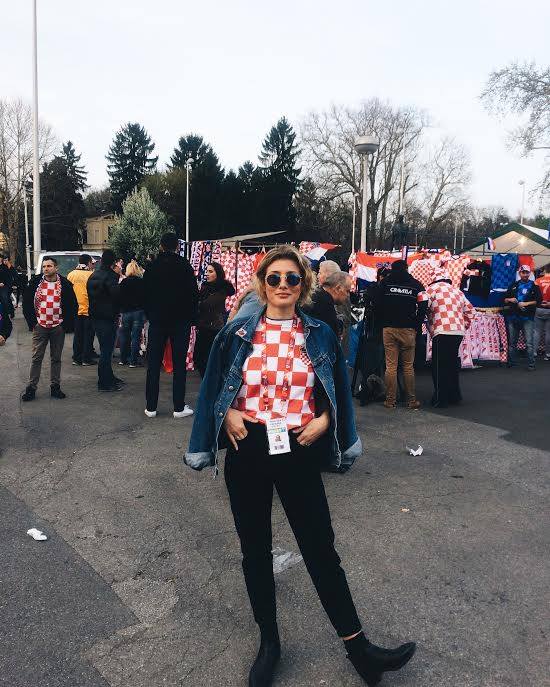
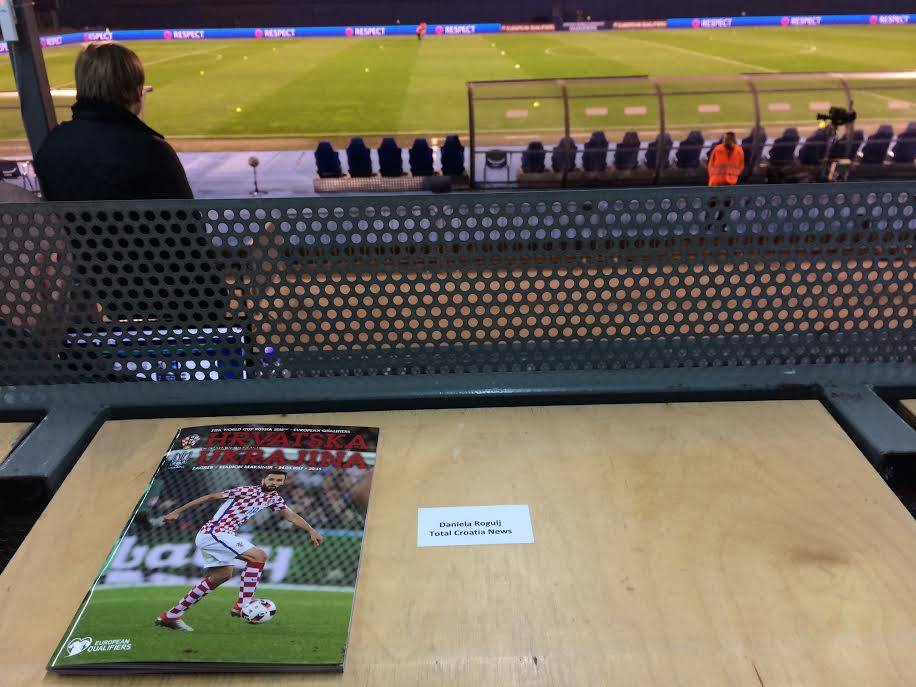
The season press pass for Hajduk came shortly after that, and I covered my first Europa League campaign between Hajduk and Everton - at Goodison Park in Liverpool and Split.
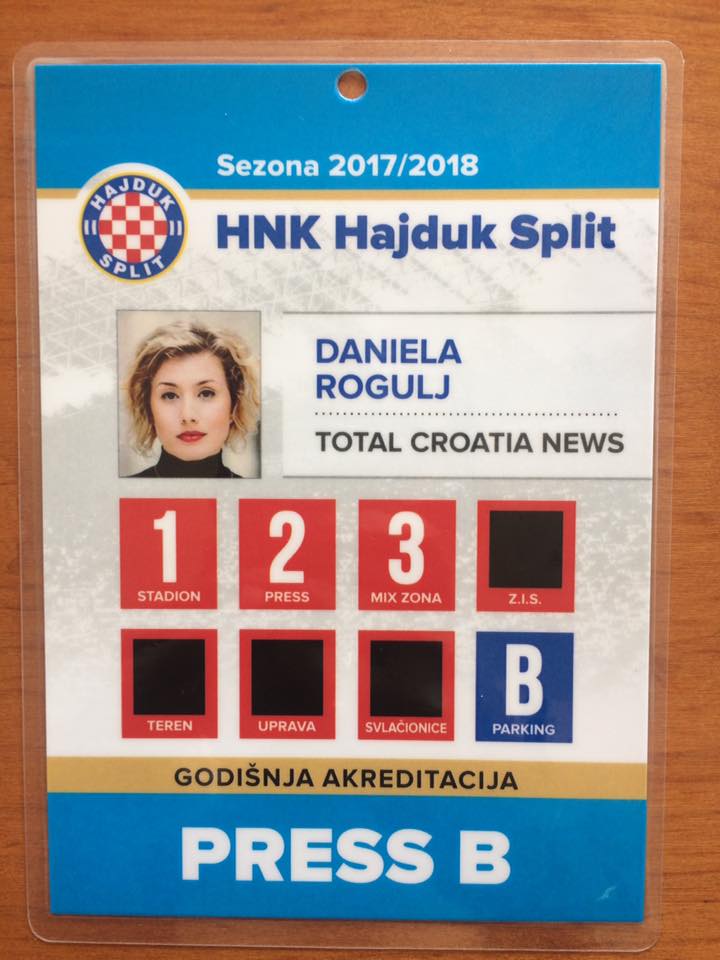
I was maybe in over my head covering my first away match, considering it was Wayne Rooney's Everton at the time. While I will never forget the euphoria amongst the fans of your club in another city, the feeling inside a Premier League stadium for the first time, and watching Nikola Vlašić against Rooney, what really got me was the return match a week later.
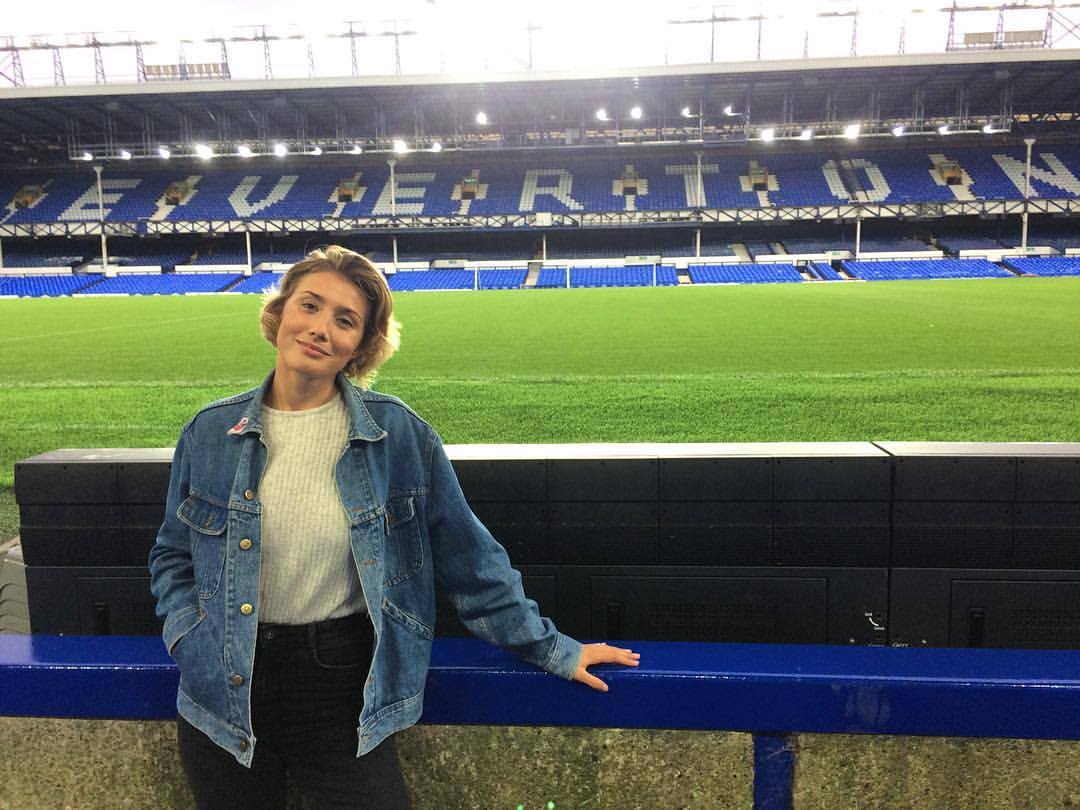
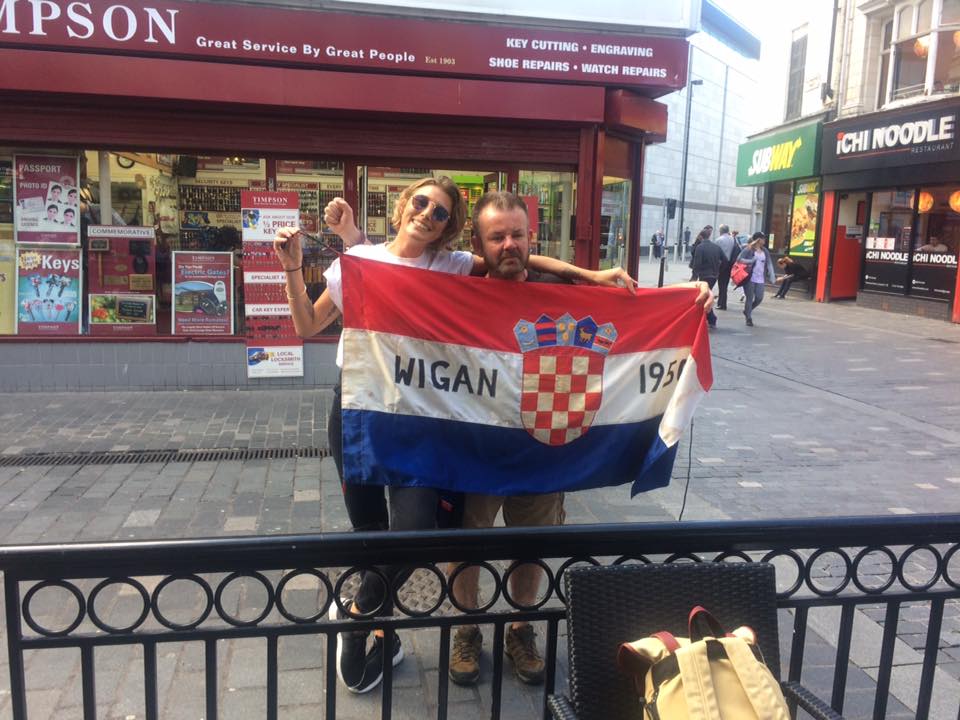
I nearly fainted in the press box when Radošević scored a screamer against Everton at a sold-out Poljud. It had never been louder. And not advancing past Everton didn't matter. From that moment, there was no turning back.
I wanted to be a football journalist.
Later that year, Croatia continued their World Cup qualifiers. After an unimpressive 1:0 against Kosovo at a flooded Maksimir (so flooded that the game had to be stopped and finished the next day), the next match was the one that mattered, and Croatia needed a win against Finland.
The match ended 1:1 at Rujevica, forcing coach Ante Čačić's sacking and Croatia's fate at the 2018 World Cup uncertain. It was as if the life was sucked out of Rijeka, and Croatia, that night, though it was the draw that changed it all. And likely the most depressing post-match press conference I have attended.
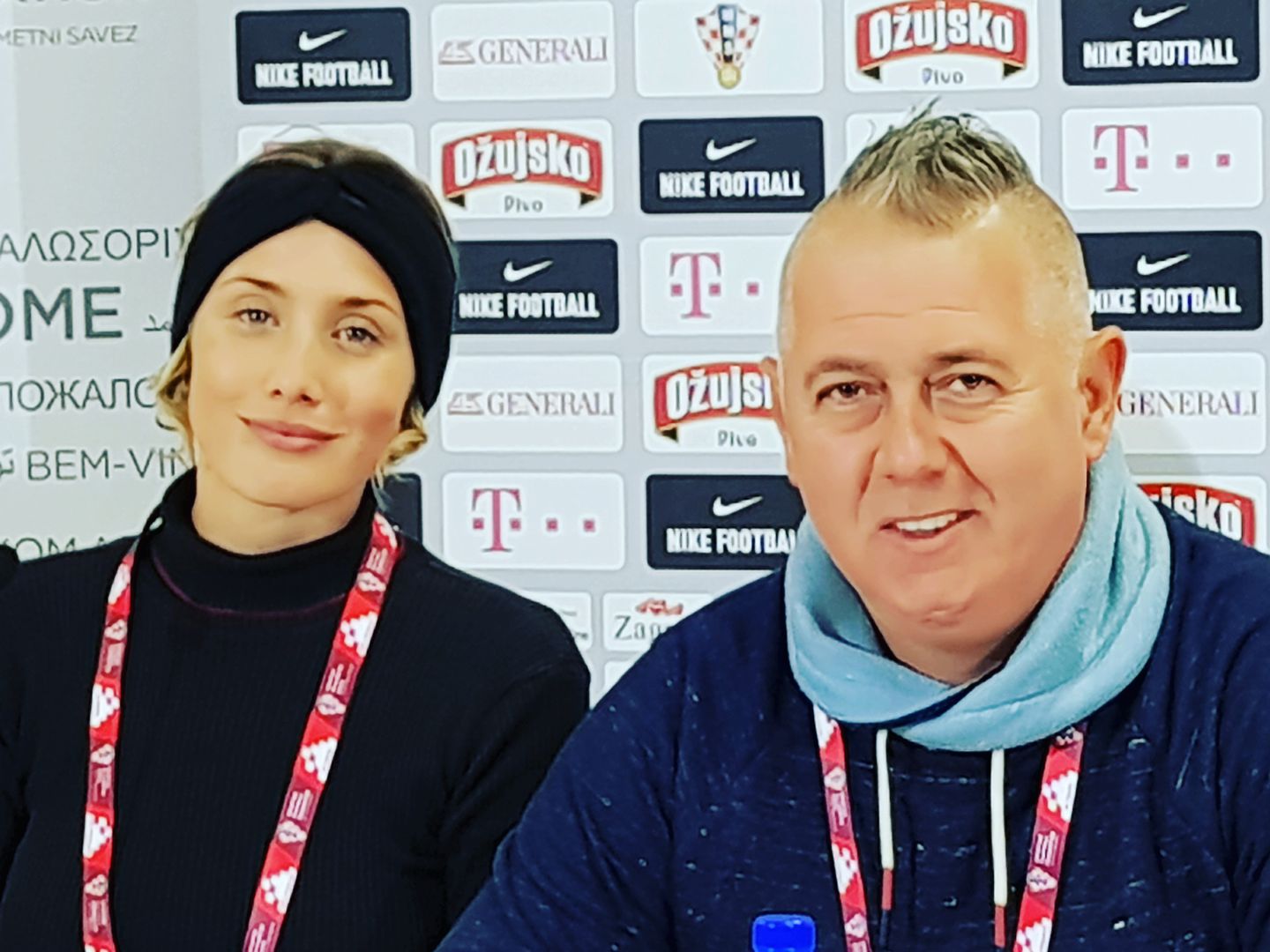
But there was hope when the relatively unknown Zlatko Dalić came in to save the day, winning 2:0 away against Ukraine and pushing Croatia into the World Cup qualifying play-off against Greece. Croatia was going to the World Cup, and the chaos of writing through these qualifiers certainly took a few years off my life.
As I was still quite new at this, I didn't expect to get a press pass for Russia, and looking back; I would not have wanted to be anywhere but Split that summer of 2018. But I definitely was not prepared for what was in store.
Okay, the World Cup is a big deal. Still, considering Croatia's rather frightening display in the qualifiers, I don't think Croatia fans expected too much - and with tensions still high between Hajduk fan group Torcida and HNS, many were hesitant to get too excited in Split. "Maybe that'll take off some of the pressure," I thought. And then Croatia beat Argentina 3:0.
I knew I had to prove myself on the international stage reporting about the World Cup for Total Croatia News, as it was the biggest tournament I had covered thus far. Getting your fingers to type fast enough when covering these matches live is hard enough, but it's another thing when your country is at stake and you owe a quality match report to the enthusiastic Croatian diaspora, even during those nail-biting extra-time finishes and penalty shootouts. How I survived that, I'll never know.
But there was another layer to my football journalism that summer - radio interviews.
Given TCN's non-stop coverage of Croatia at the World Cup, coupled with Croatia's impressive play and Modrić and Lovren's fresh perjury charge in the Mamić case, all eyes were on Croatia that summer. And being one of few covering Croatia at length in English, my phone started ringing - especially once Croatia was matched up against England in the semi-final.
I thus became the Croatian correspondent for several radio stations in the UK that summer, one of which is the largest sports radio station in the world - talkSPORT. I counted over 20 radio interviews once all was said and done and Croatia became the 2018 World Cup finalist. I realized just how important it was to be a native English speaker and football journalist in a foreign country - especially when you're on the international stage.
Later that year, I had my first star-studded press experience at Wembley Stadium, when England gained revenge on Croatia in the UEFA Nations League, and even went into the TalkSport studio in London to recap the match.
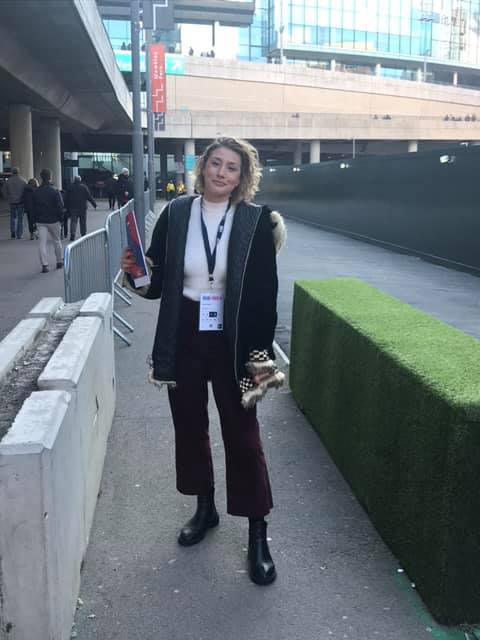
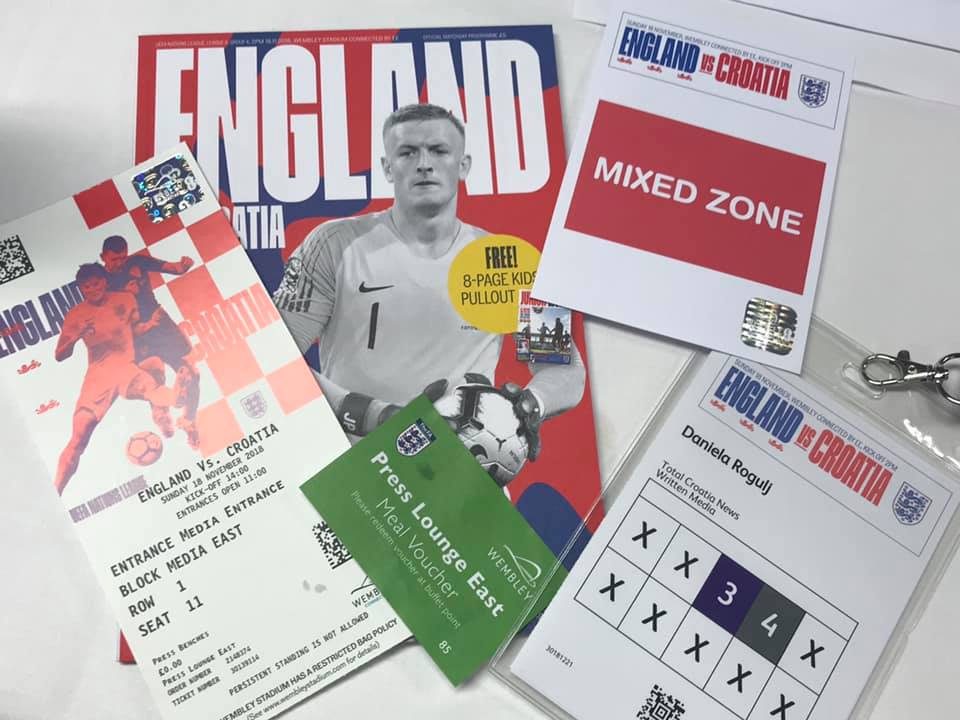
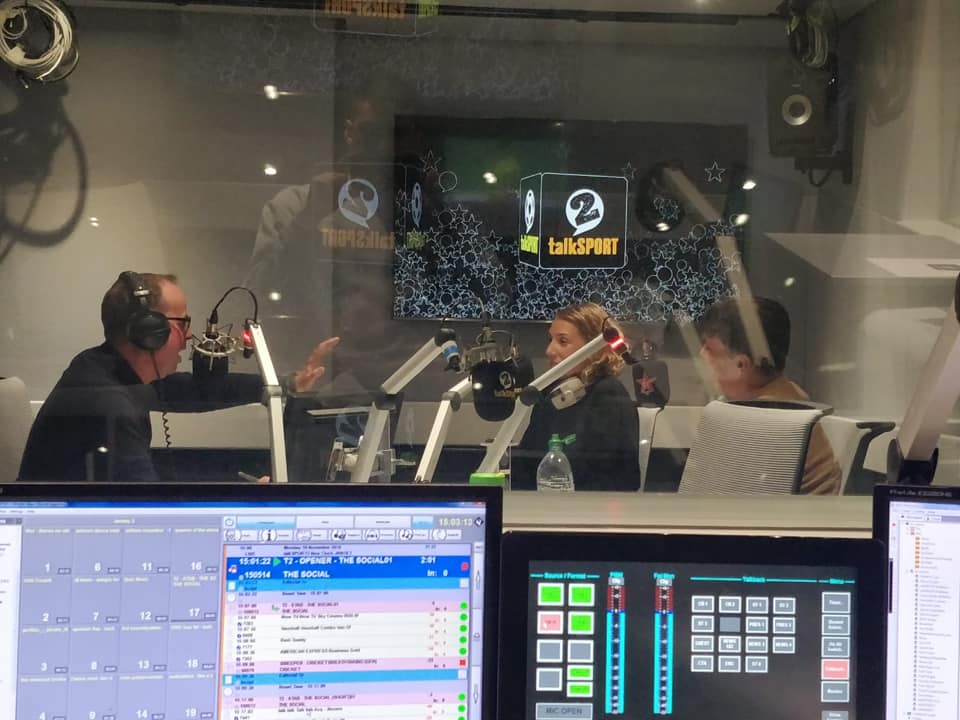
2018 ended with an interview request from BBC. And a year after that, I interviewed THE Mark Bosnich in Sydney, Australia thanks to Total Croatia News.
Covering football during the pandemic was not nearly as fun, but being amongst the select few allowed at a stadium when the ban on fans was still in force definitely brought necessary excitement to staring at the walls of your house.
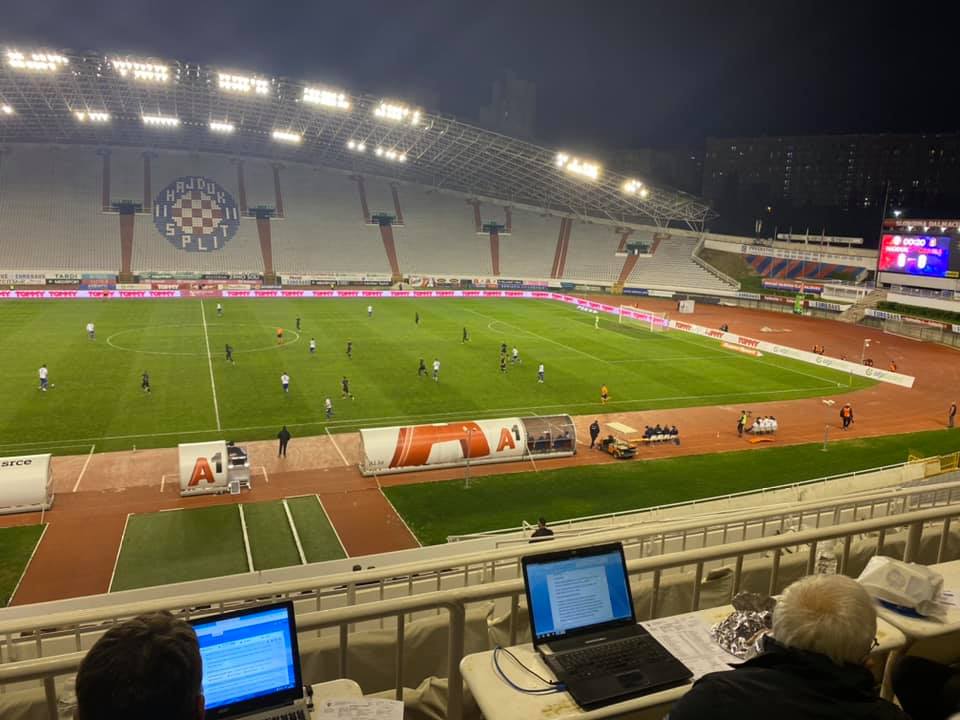
And seeing Cristiano Ronaldo in action on Hajduk territory holds a special place in my heart.
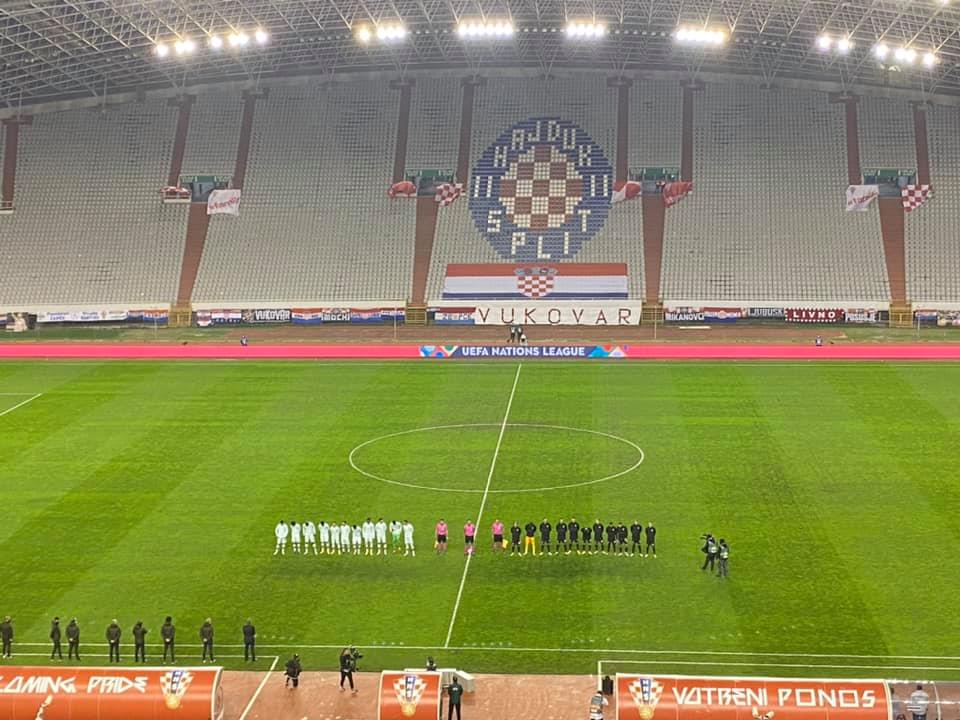
As Nations League continued, so did qualifiers for the 2020 Euros, which Croatia clinched at Rujevica Stadium against Slovakia. With the tournament postponed by a year and a press application process that had to be repeated multiple times due to tournament delays, I wasn't feeling too confident that I'd be attending this one. But less than a month before the tournament began, I got the email:
CONFIRMED: Accreditation Request for UEFA EURO 2020.
And I was off to cover my first international tournament.
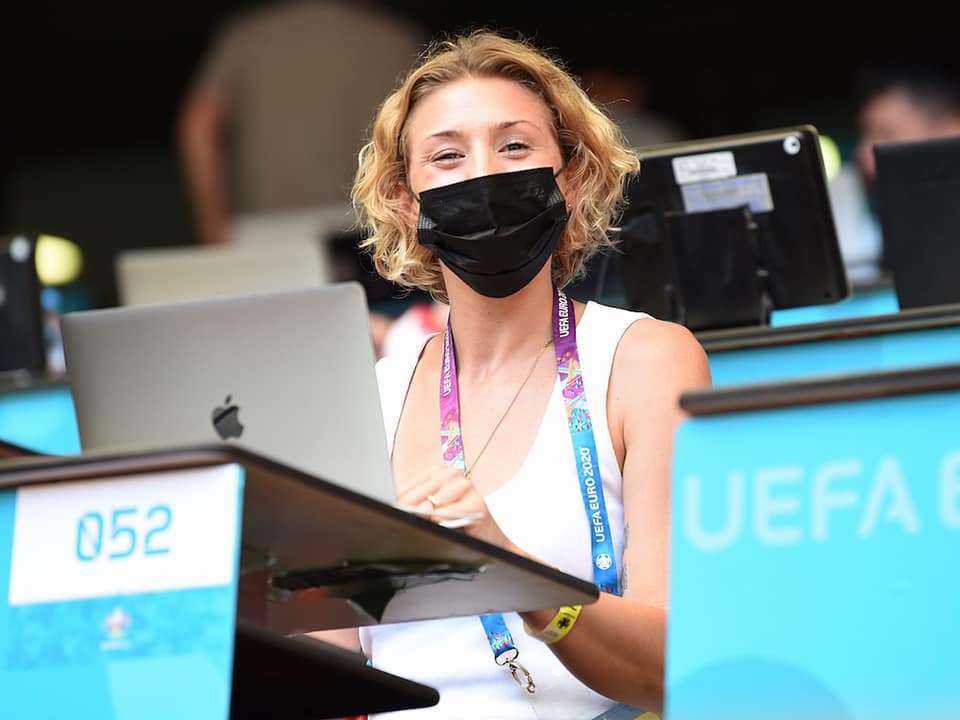
With the tail-end of the pandemic making it an absolute nightmare to make this happen, I persisted. After vaccinations and repeated Covid tests, exemptions from UEFA needed even to enter the UK, and QR codes necessary to grab a bite in London and Glasgow, I was one of few Croatian journalists that endured a Covid-riddled EURO 2020, covering Croatia from London to Glasgow and Copenhagen. And I was one of few women journalists at all.
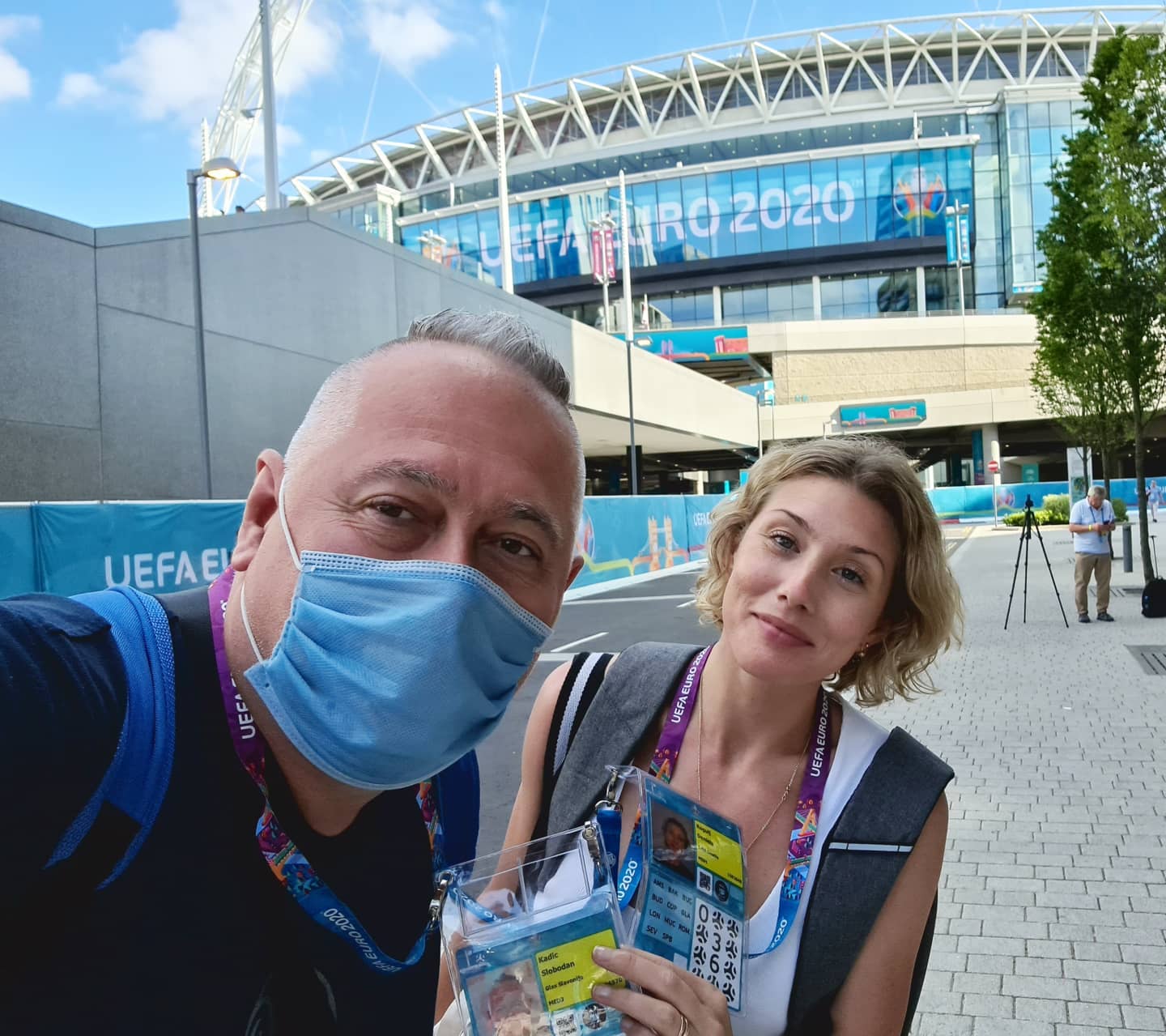
The round of 16 match against Spain was undoubtedly the highlight, especially when a fan launched a full beer at my laptop after Croatia took the game to extra time at Parken Stadium. While I could have lost my job had my laptop died and I couldn't finish writing about that game, I would have left the Euros satisfied.
And while international football has given my career an unexpected boost, the best football experiences are the ones at home, at Poljud Stadium. Especially when you witness Hajduk win their first trophy since 2013, in the Croatian Cup final, just a few months ago.
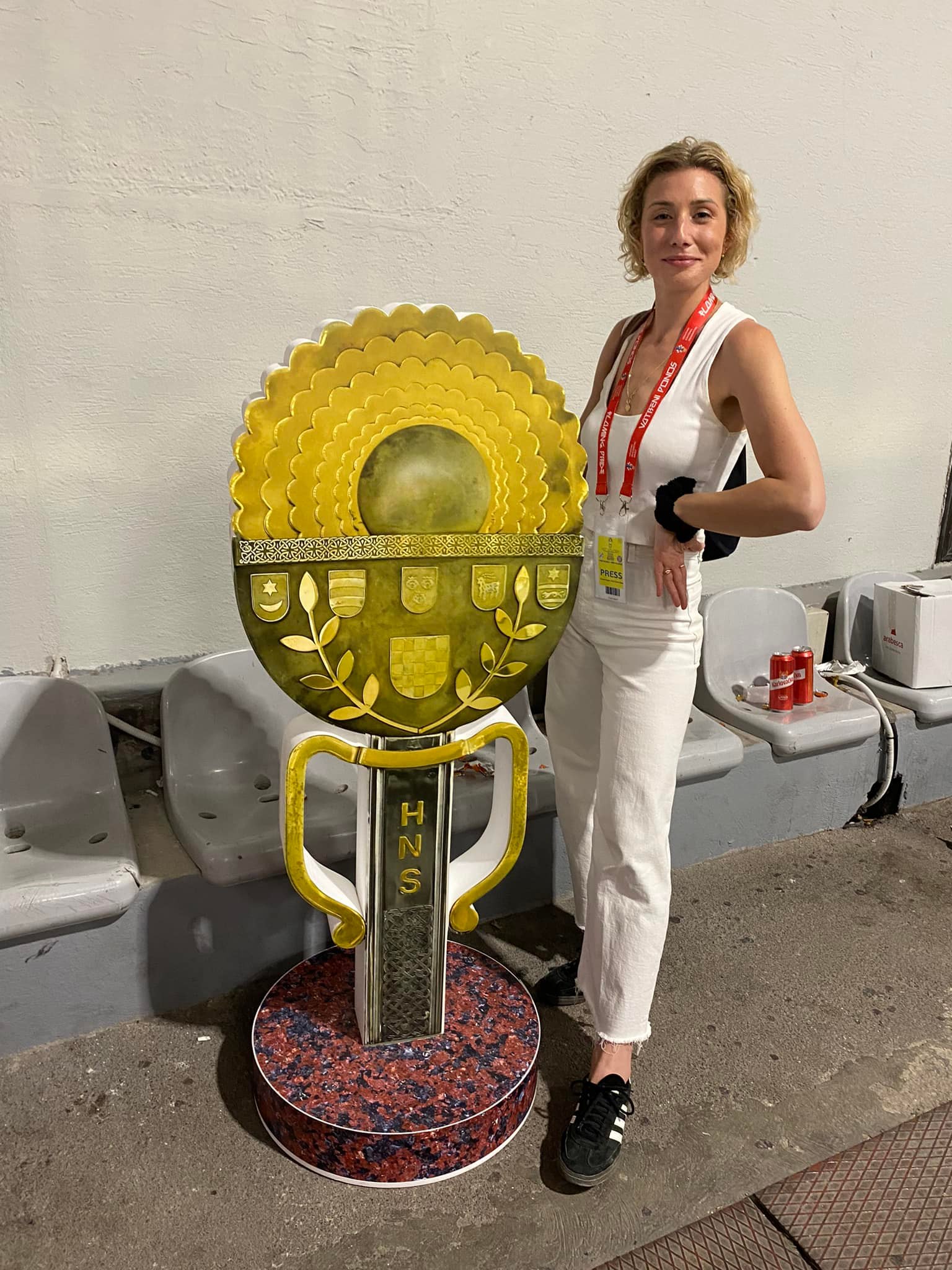
What has being a female football journalist in Croatia taught me?
That anything is possible in Croatia, so long as you put your mind to it, especially when you love something as much as I love football. If you're passionate enough about something, it will show in your work, which will ultimately be recognized. In my case, my passion brought me to an international stage that 26-year-old Daniela would have never believed possible. Now, if I get a press pass for the World Cup in Qatar this year...
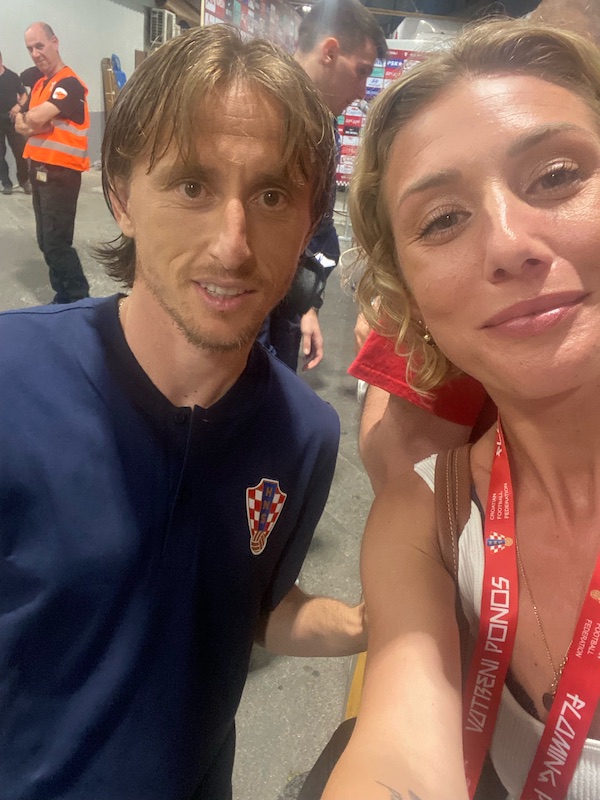
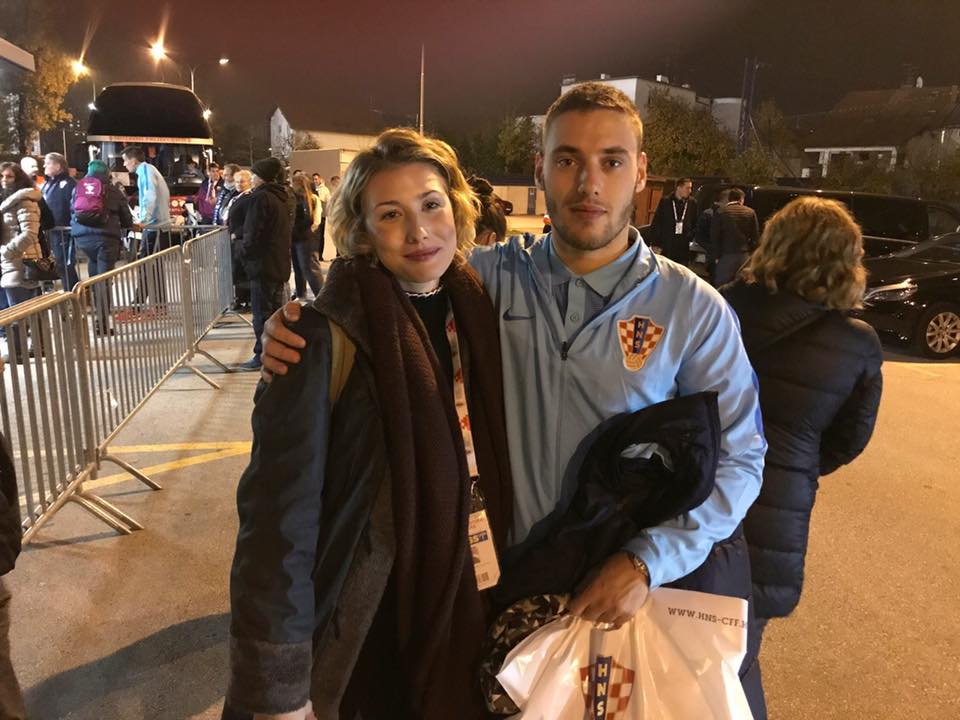
Secondly, being a woman in a man's world is empowering. No matter which match I attend in Croatia or around Europe, I am always one of few women, if not the only, reporting from the press box. I have not been treated differently, nor have my opportunities been any different. The radio shows prove that - and TalkSport even called me a Croatian football expert. Even with my silly Californian accent.
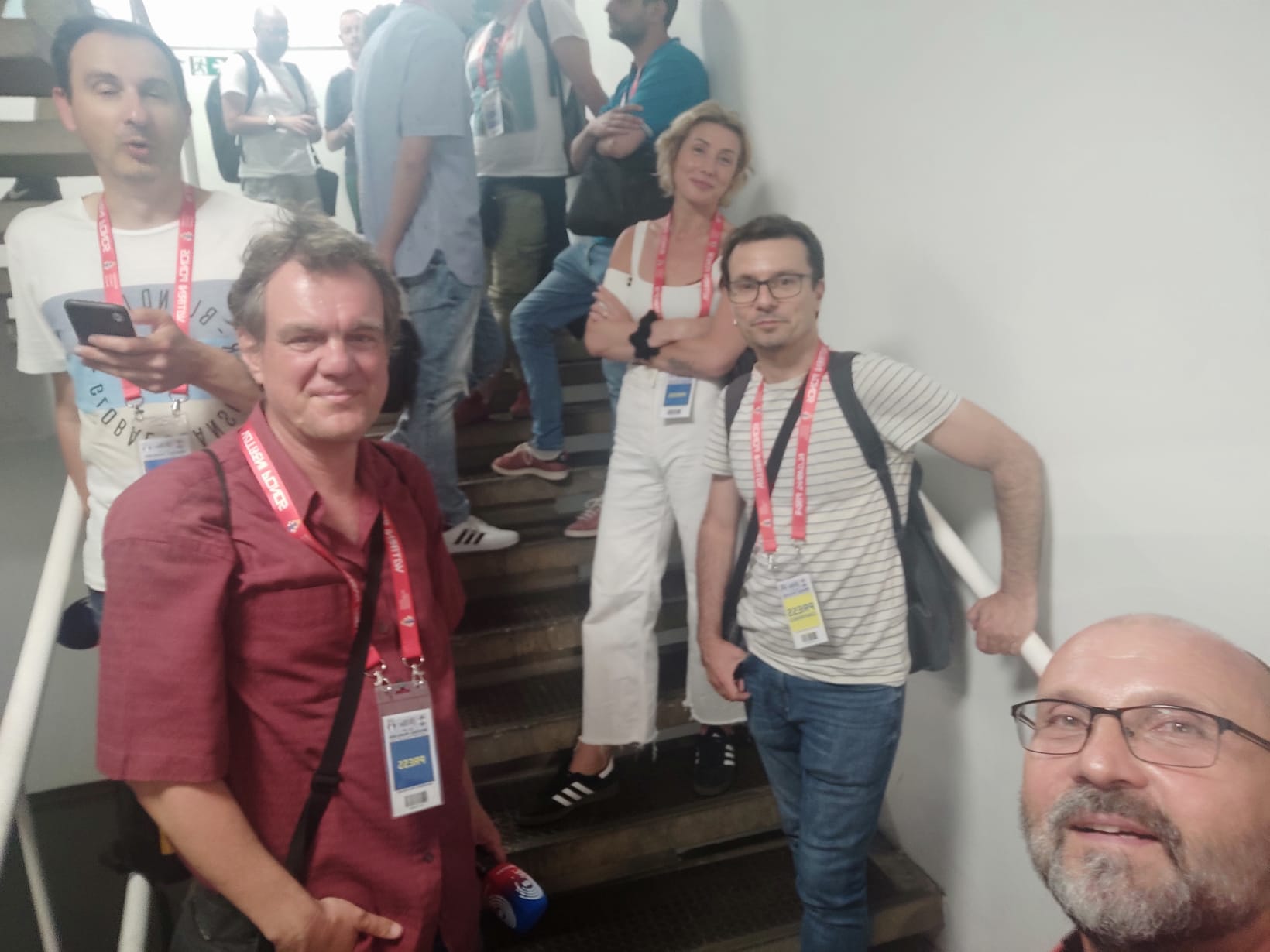
And finally? Don't listen to your colleagues. At least when they tell you that you can't do something. You should always set out to prove people wrong. Football, especially, has that effect on people.
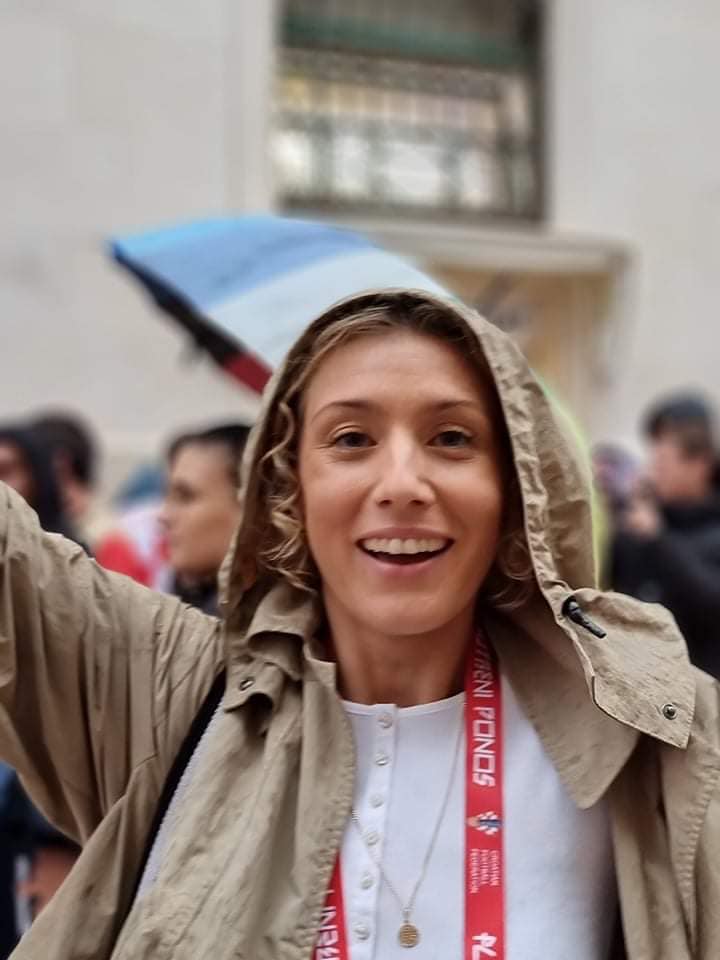
To follow the latest sports news in Croatia, follow TCN's dedicated page.
Croatian Football Transfer News: Lovre Kalinić Extends with Hajduk, Mitrović Returns to Rijeka
July 1, 2022 - The latest Croatian football transfer news for Dinamo, Hajduk, and Rijeka ahead of the new HNL season.
Dinamo
The talented midfielder Marko Brkljača, one of the greatest young talents in the world, is a new Dinamo player.
Marko was born in 2004 in Zadar and started his career as a child at club NK Velebit Benkovac. After that, he joined the ranks of Hajduk, where, in addition to his football development, he played in the Youth Champions League last season as a junior team member. Brkljača is continuously a member of the younger age groups of the Croatia national team.
In The Guardian's 'Next Generation,' Marko was included in the list of TOP 60 young football talents in the world in 2021.
"My first impressions are excellent; I am delighted about coming to Dinamo. Now it's all up to me. I need to prove myself in football terms. I desire to win my place, assert myself and show what I know and why I came. I want to play in the HNL and Europe in the future. Dinamo has excellent quality. I think everything will be as it should be in the new season, by which I mean that the club will be the champion of Croatia again and will be successful in European competitions.
I look forward to everything that lies ahead. I am sure that I can progress and contribute to Dinamo. I want to take this opportunity to thank Hajduk for the football knowledge and experience I have gained there in recent years," said Marko upon his arrival at the Zagreb club.
Hajduk
Hajduk announced on Friday that captain Lovre Kalinić would remain at the Split club for the next three years. On Thursday, Lovre terminated his contract with the English Premier League side Aston Villa by mutual consent and signed a contract with Hajduk until the summer of 2025.
The current captain started his goalkeeping career at Poljud, where he arrived at the age of nine and passed all the younger age categories of the Academy. So far, he has played 191 official matches for Hajduk. He made his debut in 2011 in an away victory against Slaven Belupo. In his last appearance, he led Hajduk to the SuperSport Croatian Football Cup title in a 3:1 victory against Rijeka at Poljud.
Lovre is also the club record holder with 775 minutes without conceding a goal in HNL matches. This record was set by Hajduk's goalkeeper in 2015 when he did not concede a goal for eight games in a row. He also made 19 official appearances for the Croatia A national team.
"I can never refuse Hajduk. I came back here at a demanding moment in my career, the club gave me a chance to revive myself as a goalkeeper, and I did not want to miss this opportunity to sign for Hajduk. My only wish was to stay there and that eventually came true," said Kalinić.
Rijeka
Matej Mitrović has returned to Rijeka. On Friday, Matej underwent a medical examination, signed a new contract, and should join his teammates for training in Kranjska Gora this afternoon.
"It's nice to return to Rijeka after so many years. A good club, nice city, great fans, and I'm satisfied," said Matej Mitrović upon his arrival in Rijeka.
After two seasons in the Cibalija jersey, Mitrović arrived in Rijeka in September 2013. He made his debut in the Croatian Cup round of 16 match against Zmaj (11:0) on October 9 of the same year. After that, he made his debut in the HNL, wearing the Rijeka jersey for the first time in the victory against Zadar (October 19, 2013), but everyone will point out the match against Hajduk on April 6, 2014, as the most crucial game that directed his path. Namely, Dario Knežević had to leave the pitch due to an injury at halftime, and Mitrović got the chance.
"As every year, we want to compete for the top of the table. I want to fit into the team as soon as possible. I invite fans to support us this season, as in previous years. Only Rijeka!" concluded Mitrović.
For more, make sure to check out our dedicated sports section.
Journalist Mate Prlić Released from Remetinec Prison One Month Later: "Right Place at Right Time"
June 16, 2022 - Croatian football fans have finally been released almost a month after they clashed with police at the Desinec rest area along the Zagreb-Split motorway. Forty-two people were in investigative custody, including Dalmatinski Portal journalist and co-founder Mate Prlić.
Mate Prlić shared his thoughts today on Dalmatinski Portal:
"'I was in the wrong place at the wrong time', is a sentence I've heard a hundred times, and I'll hear it for sure so many more, from people who are sympathetic to me and who are sorry that I was in prison for almost a month.
Although I would like to continue living as if this month has not happened, after my experience at Remetinec, I have to write this text. First of all, to thank everyone who helped me and the families of others detained after the match against Dinamo and the riots at the Desinac rest stop. And to say that it is absolutely incorrect that I was in the wrong place at the wrong time. I was exactly in the right place at the right time. I am convinced that nowhere else in this world would I be more useful than I was just in prison. And here's why.
Fans do stupid things, the media cover it up, politicians are appalled to make statements that parents with children should be allowed to come to stadiums in peace, and the court imposes heavy fines. The journalists are to blame for everything regarding the fans; they are equated with worms. You know? You don't know; it's boring already.
Even now, the journalist who was supposed to receive a letter of thanks from the Rotary Club Split for following their actions on Dalmatinski Portal but chose to see Hajduk off in the last round found himself in a room of about 20 square meters with a dozen detained fans, several Zagreb residents imprisoned for domestic violence, two Afghans and five or six Cubans (I do not know how they found themselves in Bosnia, from where they wanted to go illegally through Croatia to somewhere else).
Because of work, I followed all the reports from Ukraine, and the scene before my eyes in that room resembled those from the battlefield. Fans came with broken arms, split open heads, and bloody legs. As I slept through most of the riots in Desinac, at that station, I heard that police officers were shooting at fans with real bullets, which was amazing to me. I thought they were rubber, but when they connected us with other detained fans, it was only then that I got the whole picture, the one that could not reach the general public at that time. Fans avoid communication with the media, most of the information comes from the police, and journalists, like me, pass it on as it’s their job. If they had heard the testimonies of the fans on the first day, I believe this incident would have been viewed from a different angle because police terror took place in Desinac, which was probably acceptable in some past times. Fans did some nonsense (blocking the highway, attacking a small police force) for which certain penalties are prohibited by law, and there is no point in justifying or relativizing this act. Still, a normal state should be alarmed by what happened a few minutes later when police reinforcements arrived and quickly ‘established order.’
Revenge began. There was a brutal beating whenever it was reached; shots were fired without any sense, bullets bounced off the asphalt and wounded a couple of fans. We have never been closer to a fan being killed by a police bullet. They would drive the Torcida fans into buses and vans with batons and throw tear gas into their vehicles. When they opened the door, a beating followed. This was all at a time when there was no threat to police officers. Pure street revenge, so brutal that, according to the story of the fans, a Split policeman with a camera was told by his Zagreb colleagues to stop filming their intervention. Allegedly, there was a conflict with the 'blues' from Split, who disagreed with such bloodthirstiness. There were exceptions, like one Zagreb police officer stopped the repeated beating of a bound fan and later even visited him at the hospital to check if the injuries were fatal.
Fans picked up by the ambulance also ended up in Remetinec, as did the guys who were told to go to the station as witnesses to the shooting. The number of injured police officers increased during that disputed evening, reaching as many as 20. This was not the result of a Torcida attack (except for a few), but to report and probably justify firing dozens of bullets. At the first hearing, the suspects' lawyers stated that the injuries of the police officers were not described. They could inform the media from the police, and if 100 officials were injured, everyone would announce it, including my Dalmatinski Portal.
At one of the hearings, a suspected fan cracked after hearing a police testimony that they had come to help a wounded fan and told the judge: 'While we were lying on the ground, a police officer said he vowed to kill one donkey.' The other, walking past a few of us tied up, replied: 'Choose which one you want.' By the way, the young men helping that shot fan were put in the vehicle with batons; that is, it happened totally the opposite of any assistance from the police.
Because of all this, it is good that I ended up in prison because I would hardly believe that I heard all these things in the city. It's good that I ended up in prison because I've seen a few barely grown-up kids, for whom this was their first or one of their first away visits, falling apart mentally, and I believe, at the age of 43, I helped them endure the worst days of their lives.
'When you put your hand on my shoulder, it's immediately easier for me,' I heard from a guy with three small children, with whom, as in Robert Benigni's film 'La vita e Bella,' I devised a business plan for the business we will open immediately upon release. He has 'know-how,' another will find us an attractive business space, and I will advertise a joint venture with Dalmatinski Portal.
There will be a lot of money, we laughed in the basement room with the toilet a meter and a half away from the table where the swill is eaten, and pigeons with their feces decorate the view from the barred window. I composed quizzes for the team in the cell, devised new games, and even earned the promise that I would never be a worm for them again.
I was in the right place at the right time, and I hope that after the court part of this story is over, I will be able to enjoy the new song of the Split group Dioniz 'I wouldn't change anything.'
In the coming days, months, and years, I will thank you individually, face to face, to everyone who helped my family this month; the support meant a lot to us all. But, in the end, I must publicly thank the judicial police officers in Remetinec, who did not aggravate the already difficult situation. They treated us like people, which was by far the most important thing to us at the time."
For more on the news in Croatia, follow TCN's dedicated page.
Goran Tomić No Longer Rijeka Coach: "Thank You to Everyone at the Club"
May 28, 2022 - Goran Tomić and Rijeka have decided to part ways after the club lost to Hajduk in the Croatian Cup final and finished 4th in the Croatian First League.
After the end of the championship season and the Croatian Cup final, HNK Rijeka and Goran Tomić agreed to terminate their cooperation, announced the Rujevica club.
"In the beginning, I would like to point out that the agreement was reached on my initiative, and I thank HNK Rijeka for coming out to meet me," said Goran Tomić.
Tomić was appointed the coach of Rijeka at the beginning of March 2021, and at the end of the season, he took Rijeka to third place in the Croatian Championship. This season, Rijeka reached the Conference League playoffs, made it to the Croatian Cup final, and finished fourth place in the HNL.
"I would like to thank everyone at HNK Rijeka, starting with President Damir Mišković for the opportunity, Vice President Dean Šćulc, Robert Palikuča, and Ivan Mance, sports directors I worked with, club legend Srećko Juričić, general manager Luka Ivančić, but of course all the people in the club. Thanks to the professional staff I worked with every day, the players who played great games, and I am sure that we gave our best at all times. Rijeka will always remain in my fond memory as a wonderful part of my career. In the end, thank you to all the fans for their support," concluded Goran Tomić.
Tomić spent 15 months at Rijeka or 63 games. He recorded 37 wins, 9 draws, and 17 defeats, with a 130:85 goal difference. He finished the first season on the Rijeka bench in third place, the second in fourth. He led the team to the Cup final in the second, beating Dinamo in the quarterfinals and then Osijek in the semifinals. However, Rijeka lost in the final against Hajduk. In the weeks before the Croatian Cup final, Rijeka did not show their best side. Since March 13 and the inexplicable defeat to Dragovoljac, Rijeka practically dropped out of the title race and ended the season with six losses and only four victories in the last 11 games.
For more, make sure to check out our dedicated sports section.
HNS, Hrvatski Telekom, and SuperSport Sign Historic Croatian Football Contract
May 4, 2022 - A historic Croatian football contract was signed today by the Croatian Football Federation, Hrvatski Telekom, and SuperSport.
Today in Zagreb, the leaders of the Croatian Football Federation, Hrvatski Telekom, and SuperSport signed an agreement on television and marketing rights for matches under the auspices of the Croatian Football Federation, announced HNS.
The contract signing ceremony by which Hrvatski Telekom became the owner of television and SuperSport marketing rights for matches owned by the Croatian Football Federation was organized in the Opera Hall of the Westin Hotel in Zagreb. Contracts run from the beginning of the 2022/23 competition year until the end of the 2025/26 competition year.
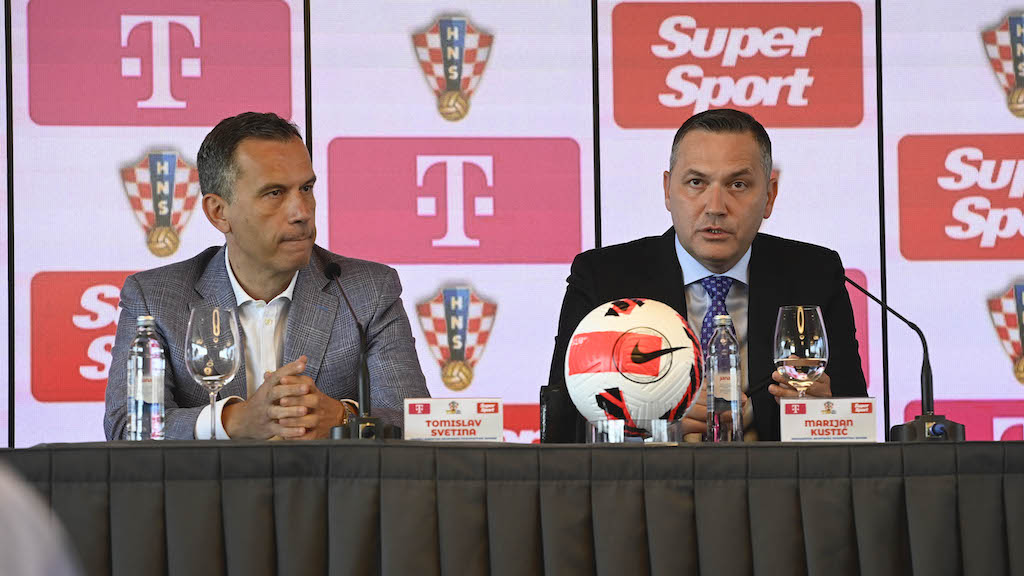
HNS
It is the most valuable agreement for television and marketing rights in the history of domestic club football. During the four contracted years, Hrvatski Telekom will invest EUR 36 million for television rights, while SuperSport will invest a total of EUR 8 million for marketing and betting rights. The Croatian Football Federation has thus provided 44 million euros in four years for domestic football.
"I thank the present management of Hrvatski Telekom and SuperSport for their trust and the respect they have shown for such a significant investment in domestic football. We are especially pleased to sign such vital contracts with companies that are proven friends and partners of Croatian football, which gives us additional faith that together, we will make our First League but also other competitions even stronger, more attractive, and better.
It is unnecessary to emphasize how much these funds will mean for our first leagues and other clubs in Croatia - this is the most crucial contract related to domestic club football in history and confirms its market value. I am sure that this value will continue to grow thanks to this agreement and that this significant investment will pay off for our partners as well," said HNS President Marijan Kustić.
"I am delighted to continue our long-term cooperation with HNS. We always strive to provide our customers with the best sports content, and Croatian football falls into that category because it is about content close to the fans of all Croatian clubs. With our renewed four-year partnership with HNS, we are laying the foundations for the further development of Croatian football clubs, to enjoy even more competitive competition and better matches in production and on the leading pay-TV platform in Croatia," said the President of the Management Board of Hrvatski Telekom Kostas Nebis, while the member of the Management Board Nataša Rapaić added:
"Croatia is a sports nation in which football has a special status and significance, and the Croatian Football League has never been so interesting. We are pleased that HT can convey this excitement and positive emotions to the Croatian audience. We stand for these values as a company - connectivity, positivity, and creating new opportunities."
SuperSport has become the owner of marketing and betting rights, and satisfaction with the signed contract was expressed by a member of the SuperSport Management Board, Goran Đurić:
"We are proud that SuperSport has become a direct partner of Croatian football, in which we have invested significantly before. I believe we all agree that our football league has never been more interesting, and we are convinced that this agreement will allow further development of clubs and domestic competitions. We trust HNS, and we are looking forward to working with the Federation and Hrvatski Telekom on the further marketing, commercial, and media development of domestic football."
"Football is the most popular, important, and most-watched sport in Croatia. The First League is equally watched and important to both spectators and our players as the strongest football competitions in the world, such as the Champions League. That is why we are thrilled that today we signed such a valuable contract that will enable our football to continue to grow, which is visible by all criteria. We are proud to provide our players with the highest quality content as market leaders," added SuperSport Board Member Radim Haluza.
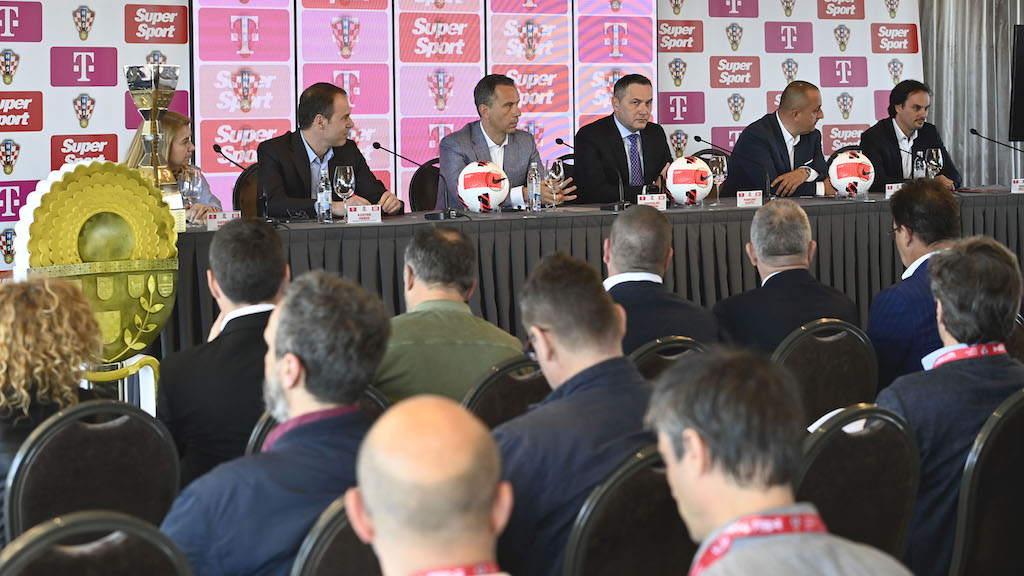
HNS
"For HNS, and especially Croatian clubs, the contract we signed today is truly of historical importance. I want to thank our partners, Hrvatski Telekom and SuperSport, for their trust and congratulate all clubs that have raised the level of quality and the curiosity of the competition to the level that we can sign a contract like this. An important role in increasing the league's attractiveness was played by HNS's first league turf project, which shows that for all of us - clubs, federations, and local communities - further development of stadium infrastructure should be a strategic determinant so that the value of our 'product' continues to grow," HNS Executive Director Tomislav Svetina emphasized.
After signing the contract, the leaders of HNS handed over one home and one reserve jersey of the 2018 World Cup finalists to the leaders of Hrvatski Telekom and SuperSport with the numbers 2022 and 2026, which together show the duration of the contract signed today.
To read more about sports in Croatia, follow TCN’s dedicated page.
NK Rijeka Wins 3:1, Osijek Misses Golden Chance to Reach First Place
April 23, 2022 - In the derby of the 32nd round of the Croatian First League, the football players of NK Rijeka defeated Osijek 3-1 at home in Rujevica. NK Osijek missed out on a great opportunity to clinch the top of the table and would move into third place if Hajduk wins on Sunday.
Goals for Rijeka were scored by Robert Murić ('19, PEN), Haris Vučkić ('36), and Josip Drmić ('48), while Antonio Mance ('65) reduced the score difference to 3-1, reports Slobodna Dalmacija.
Both teams started attacking intensely at the beginning of the game, as several of Osijek's introductory attempts were defended by Rijeka's goalkeeper Labrović. In Rijeka's first dangerous attempt, Drmić's shot in the 9th minute was stopped by Osijek's goalkeeper Ivušić. NK Rijeka took the lead 10 minutes later. Čeberko recklessly played the ball with his hand in his own area, so referee Zebec pointed to the white dot, and Murić scored the penalty kick. By the end of the first half, Rijeka was a much better opponent and in the 30th minute Selahi shook the crossbar with a powerful shot, but six minutes later there was no save for Ivušić's goal. Drmić calmed down the ball very well in the visiting area and assisted Vučkić, who hit it under the crossbar with a powerful shot from eight meters.
At the beginning of the second half, Rijeka scored its third goal. Murić ran through the right wing, sending a sharp ground ball for Drmić, in an attempt that was not difficult to increase the advantage of his team. After that, Osijek went on a full offensive and seemed that in the 57th minute they should have been awarded a penalty kick. Solano was caught napping as Kleinheisler lifted a ball over him following a free-kick, but the ball hit the bar, rebounding into the keeper's arms. The situation was also reviewed through the VAR and the decision surprisingly remained in force, although the footage clearly shows a blow to the Hungarian's foot. However, the guests reduced the score difference to 3-1 in the 65th minute when Mance received the ball 25 meters from the goal, took two steps forward, and shot, and the ball hit Smočić's block on the way to the net and deceived Labrović.
With this defeat, Osijek missed the opportunity to take the top of the table, remaining second with 64 points, two less with a game more than leaders Dinamo, who are visiting Gorica on Sunday, and two more with a game more than third-placed Hajduk, who are visiting Slaven Belupo on Sunday. Rijeka is fourth with 58 points.
To read more about sport in Croatia, follow TCN’s dedicated page.
World Cup and Croatia: 5 Reasons to Dream of Glory (Again)
April 3, 2022 - The Vatreni already know their rivals for the biggest football event to be held in Qatar this year, and there are reasons to believe that Modrić and company can add yet another page to the wonderful history between the World Cup and Croatia.
There is no easy rival in the World Cup, and this should be well known by now. It doesn't matter what path took you to the biggest stage in football, once you're there all you think about is winning and advancing as far as you can. If not, ask Croatia in 1998 and twenty years later, in 2018. To qualify for the World Cup in France, Croatia had to play a two-game playoff against Ukraine, after finishing second in their qualifying group behind Denmark. They beat the Ukrainians 3-1 on aggregate, and destiny led them to finish third in their first-ever World Cup finals.
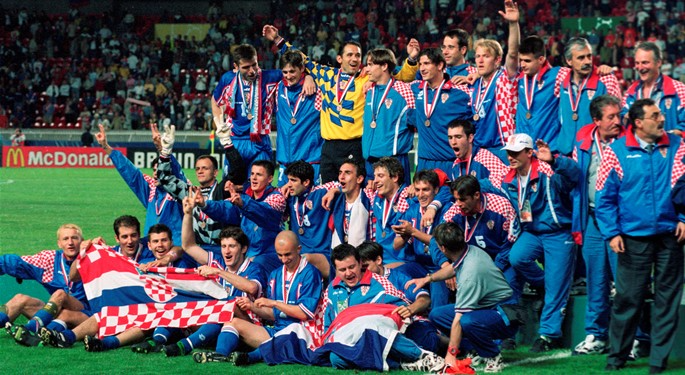
The Croatian national team, led by ''Ćiro'' Blažević, reached third place in France '98. (Image: Croatian Football Federation)
Unlike other national teams, Croatia's qualifying history has not been constant. After the success in France, Croatia qualified directly for the World Cups in Korea-Japan in 2002, and Germany in 2006. However, they would miss the World Cup in South Africa in 2010 and again would need the playoffs to qualify for the World Cups in Brazil in 2014 and the most recent in Russia in 2018. Little or nothing Messi's Argentina, host Russia or Harry Kane's England would have imagined, that the Croats did not travel to Russia on vacation. They had a mission, and this led them to overcome what was done by Šuker, Boban, or Prosinečki twenty years before that. Croatia, defying the odds, reached the final of a World Cup.
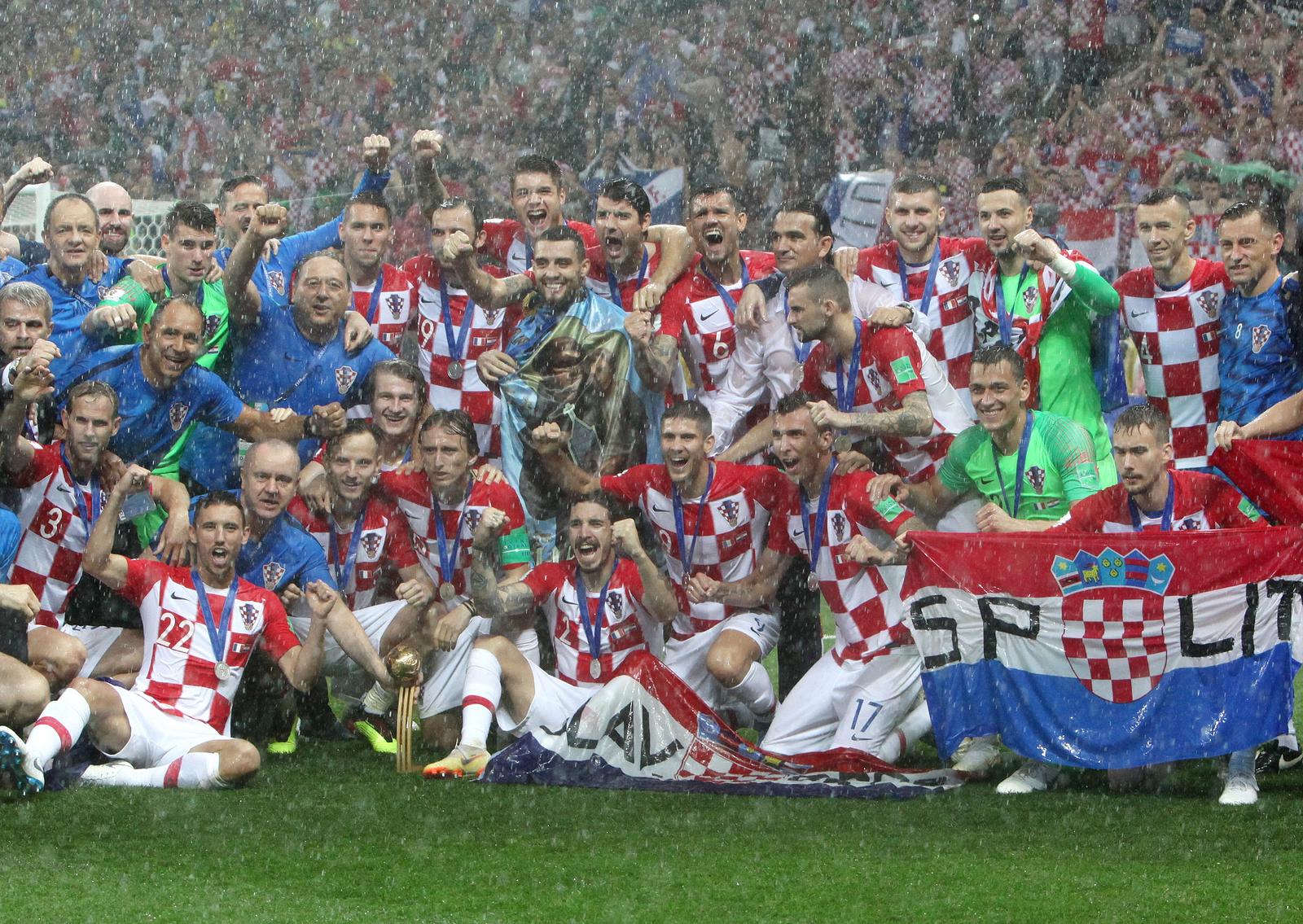
Croatia could not beat France in the World Cup final in Russia, but the second place achieved will always be remembered. (Photo: PIXSELL)
Can Croatia repeat a memorable feat? We think so, and here are 5 reasons why you should too.
Group draw
Two days ago, the draw for the group stage of the World Cup in Qatar was held. Croatia, despite coming second in the previous World Cup and finishing first in their qualifying group, was placed in Pot 2 of the draw. Those led by Dalić could not avoid playing against teams such as Brazil, France, Argentina, or Spain, but they could avoid others such as the Netherlands or Germany, also in Pot 2. Thus, the chances for Croatia to be put in a theoretical ‘‘group of death’’ were low.
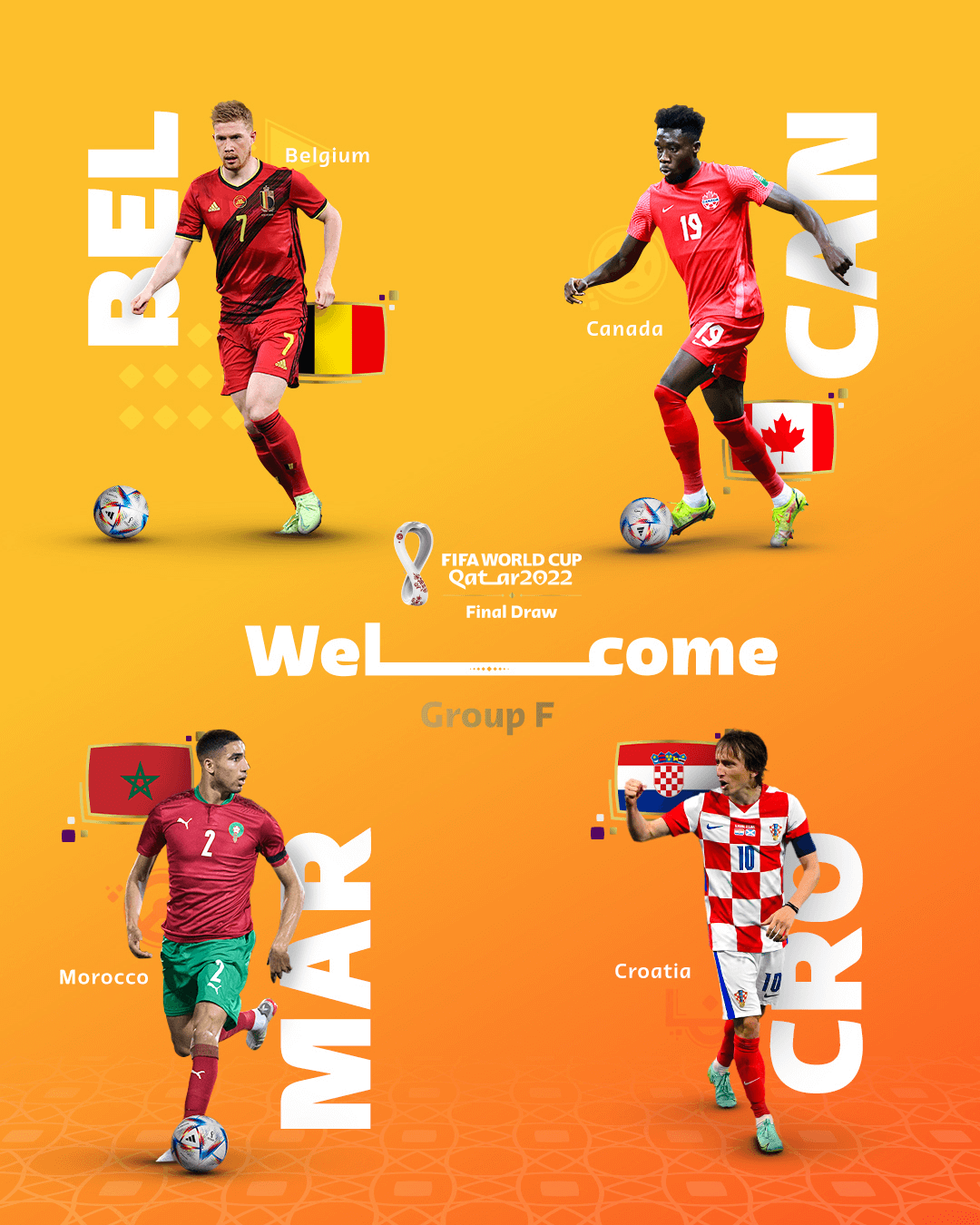
Image: @FIFAWorldCup/Twitter
Croatia will be in Group F, with the Belgian team as the leader, and where they will be joined by Canada and Morocco. I would like, at this moment, to remember the first thing I said at the very beginning: there is no easy rival in the World Cup. Oh yes, I've read loads of people on social media saying "not bad" or that it is an "affordable group for Croatia". The reality is that we are up against Morocco, a team that has matured since the last World Cup in Russia and one of the toughest in Africa. While the absence of Hakim Ziyech (Chelsea) may sound motivating for many, the Moroccans still have a group of talented players such as Yassine Bounou (Sevilla), Achraf Hakimi (PSG), Sofyan Amrabat (Fiorentina), Adel Taarabt (Benfica), Youssef En-Nesyri (Sevilla), or the very young Ez Abde, from Barcelona B.
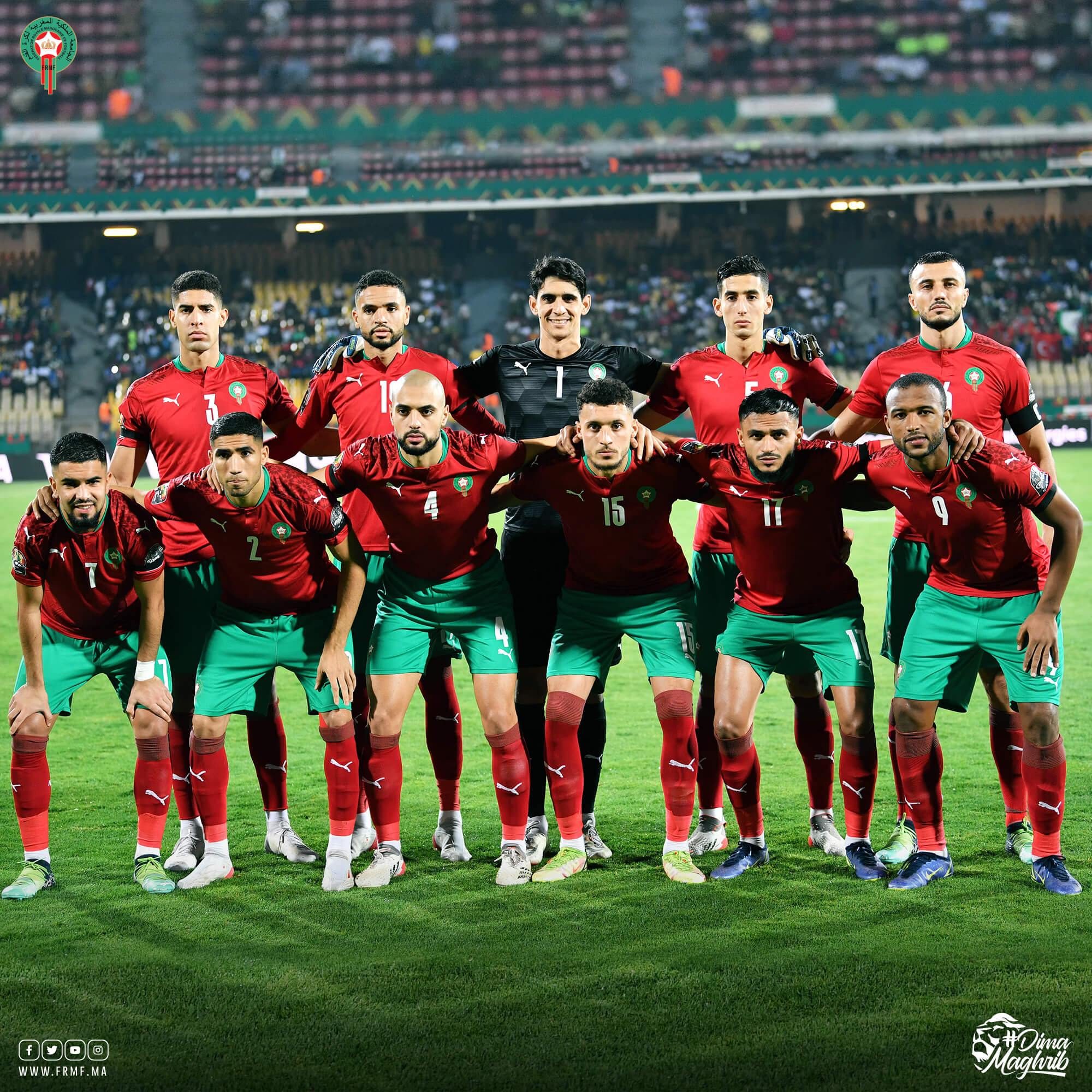
Croatia's first World Cup match will be against Morocco on November 23 at Al Bayt Stadium. (Image: @EnMaroc/Twitter)
Canada might sound to many like the rival to beat, but don't underestimate that the Canadians finished the CONCACAF standings in the first place and very comfortably ahead of more experienced teams like the United States, Mexico, or Costa Rica. The North American country will be looking to bring out the best in a golden generation that includes the likes of Alphonso Davies (Bayern Munich), Jonathan David (Lille), and Cyle Larin (Besiktas).
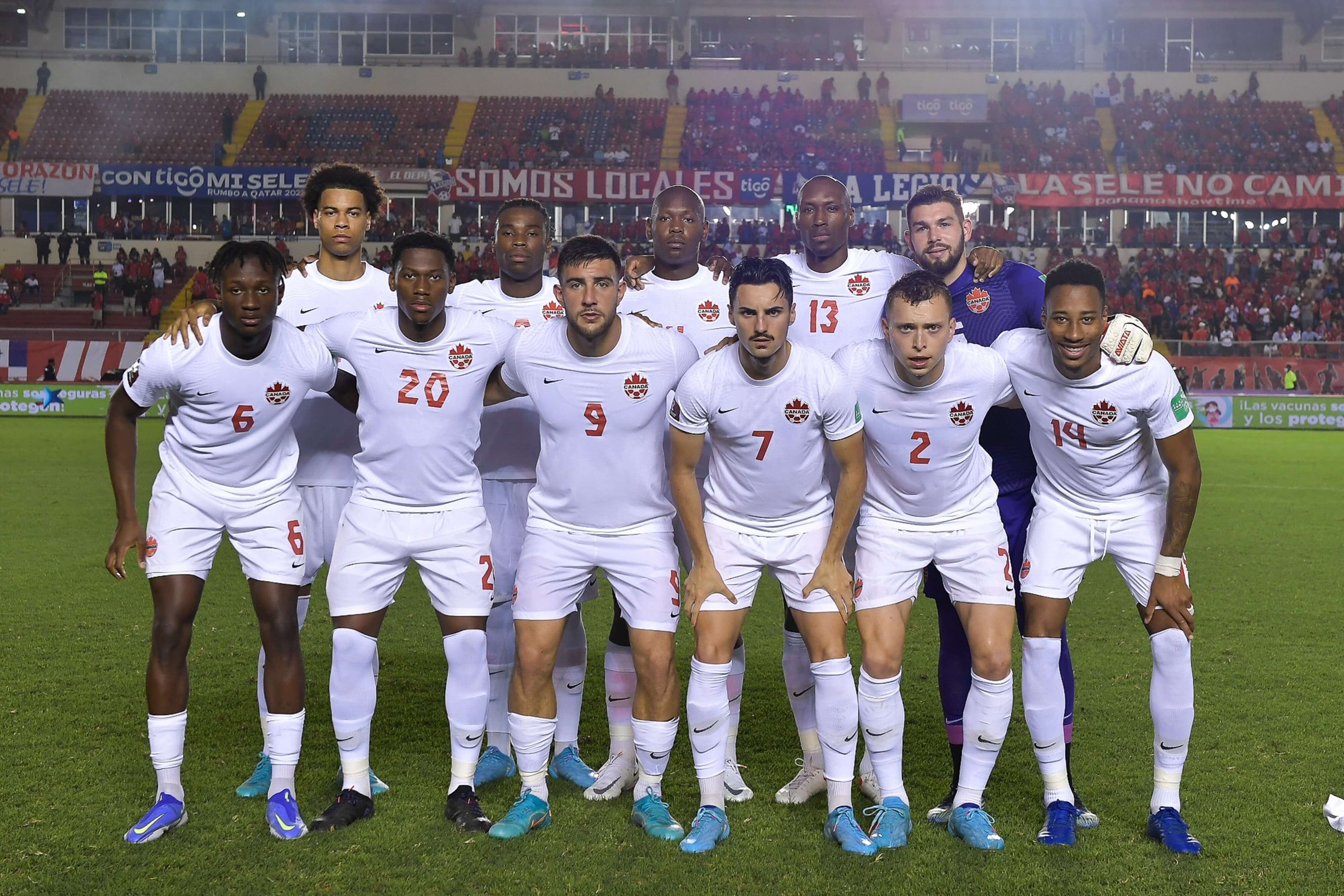
Croatia's second game will be against Canada on November 27 at the Khalifa International Stadium. (Image: @CanadaSoccerEN/Twitter)
Finally, Belgium will surely be Croatia's big test, and many believe that it will be between them who will go through to the round of 16 as group leader. But despite the fact that some point out the bad moment and the injuries of Eden Hazard at Real Madrid, the lack of continuity of Romelu Lukaku at Chelsea, or the departure of emblematic defenders such as Vincent Kompany or Thomas Vermaelen, the truth is that the Belgian team also has reasons to go far. A team that has Kevin De Bruyne (Manchester City), Thibaut Courtois (Real Madrid), Yannick Carrasco (Atlético Madrid), Axel Witsel and Thomas Meunier (Borussia Dortmund) at the peak of their football maturity, as well as many youngsters who will refresh the team with their mischief, like Youri Tielemans (Leicester City), Alexis Saelemaekers (Milan), Albert Sambi Lokonga (Arsenal) or Jérémy Doku (Rennes), is a team to bet on as World Cup champions. In 2018, they were the third-place team behind Croatia.

Croatia will close the group stage against Belgium on December 1 at the Ahmed bin Ali Stadium. (Image: @BelRedDevils/Twitter)
So if the group is not as easy as we thought, why would it be a reason to dream? Although I insist that confidence comes from not underestimating the rivals but instead being cautious, other groups have more even teams. Group E has Spain, Germany, and Japan (waiting for Costa Rica and New Zealand). Group H has Portugal, Uruguay, South Korea, and Ghana. Croatia will first play Morocco, then Canada, and will play the last game of the group stage against Belgium. If Croatia believes in its chances, it could arrive with six points to face the Belgians and fight for first place in the group. But, of course, those six points must be won first, and for that, they will have to be at the same level as the Moroccans and the Canadians.
A new generation of Croatian football players
Something that surprised (and saddened) everyone after the World Cup in Russia was the retirement from the national team of many players who were part of that wonderful team that got second place: Danijel Subašić, Vedran Ćorluka, Ivan Rakitić or Mario Mandžukić. Likewise, some starting players have been left out due to physical problems, such as Ivan Strinić, or behavior, such as Ante Rebić.
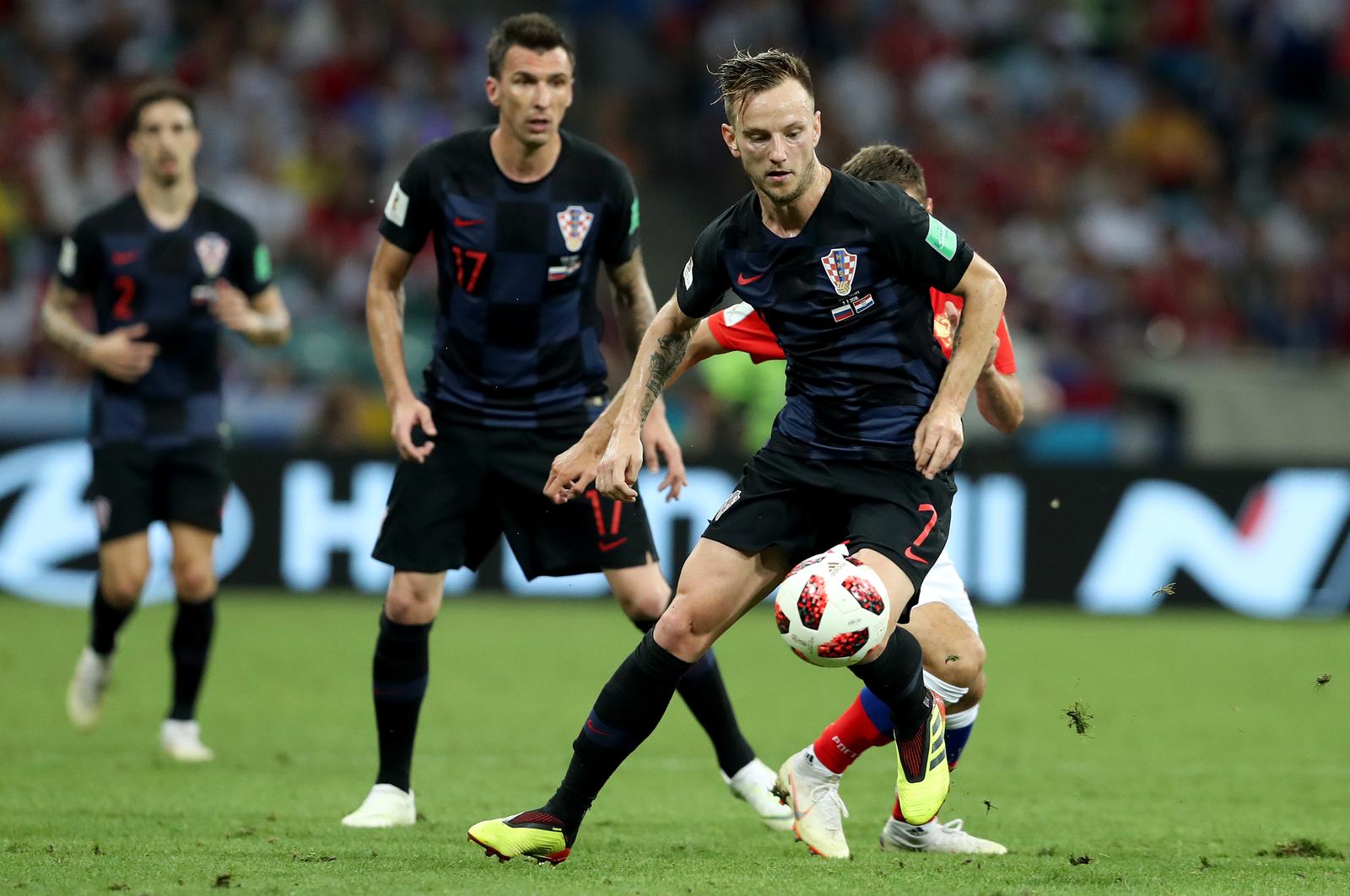
Mario Mandžukić and Ivan Rakitić, two key players who are no longer part of the Croatian national team. (Photo: Igor Kralj/PIXSELL)
It is difficult to deny the negative impact of their absences on the Croatian team, and this could be seen in the subsequent Nations League (2018-19 and 2020-21) and Euro 2020, where it seemed that Dalić's team could not find a way to cover their exits.
But the Croatian team, especially in the second part of the World Cup qualifying phase, seems to have found several young players who will make their debut in the top competition, and nourish the team with their energy and desire. Dominik Livaković (Dinamo Zagreb) in goal, defenders Borna Sosa (Stuttgart), Joško Gvardiol (RB Leipzig), and Josip Juranović (Celtic), midfielders Nikola Vlašić (West Ham), Nikola Moro (Dynamo Moscow), and Lovro Majer (Rennes), and striker Josip Brekalo (Torino) are some of the players who will complement the more experienced players.
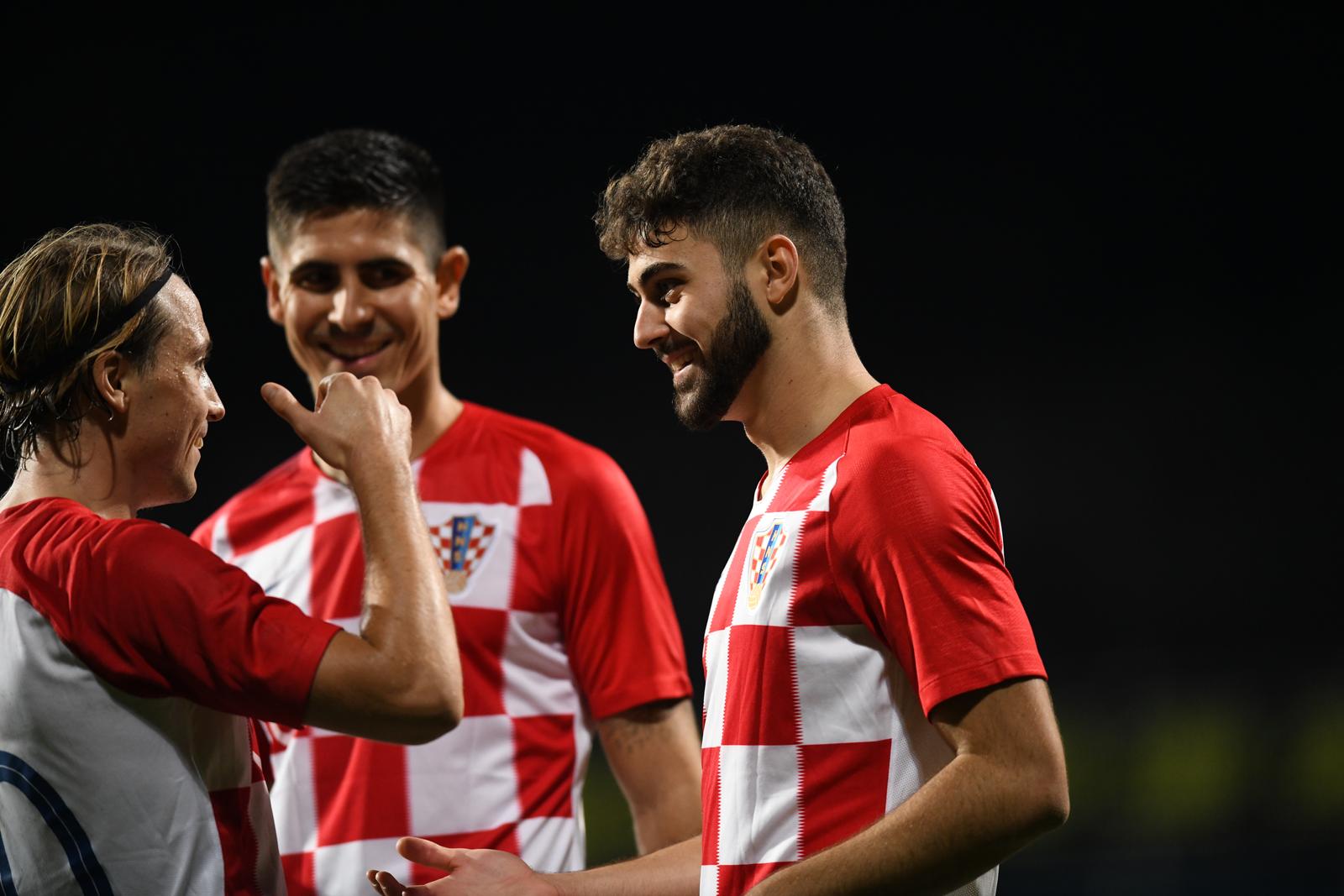
Lovro Majer (left) and Joško Gvardiol (right), two young Croatian players who are called to renew the national team with their youth and projection. (Photo: Josip Regovic/PIXSELL)
Likewise, and despite not being as young as those already mentioned, some players who did not go to the last World Cup will also have the opportunity to bring the best of their talent and experience to the Croatian team. Marko Livaja (Hajduk Split) and Mislav Oršić (Dinamo Zagreb) shine in the Croatian First League and will help Vatreni regain offensive power with their fighting spirit.
In the last games that gave Croatia the qualifying ticket, these players showed not only to be decisive but also made it clear that they are ready for any football challenge. Many of them are starters for their clubs and in competitive leagues, and some of them are even starters for the national team. Let's hope Dalić gives them the opportunities they need to shine and gain experience.
Experience all around the field
And while many of the players who achieved the epic in Russia are no longer in the squad, Croatia will need more than ever of those who stayed. Croatia will need their leadership, their experience, and their hunger for revenge. An extremely young team is not always good, and neither is a team with a lack of renovation. But Croatia seems to have found that balance, and in all lines.
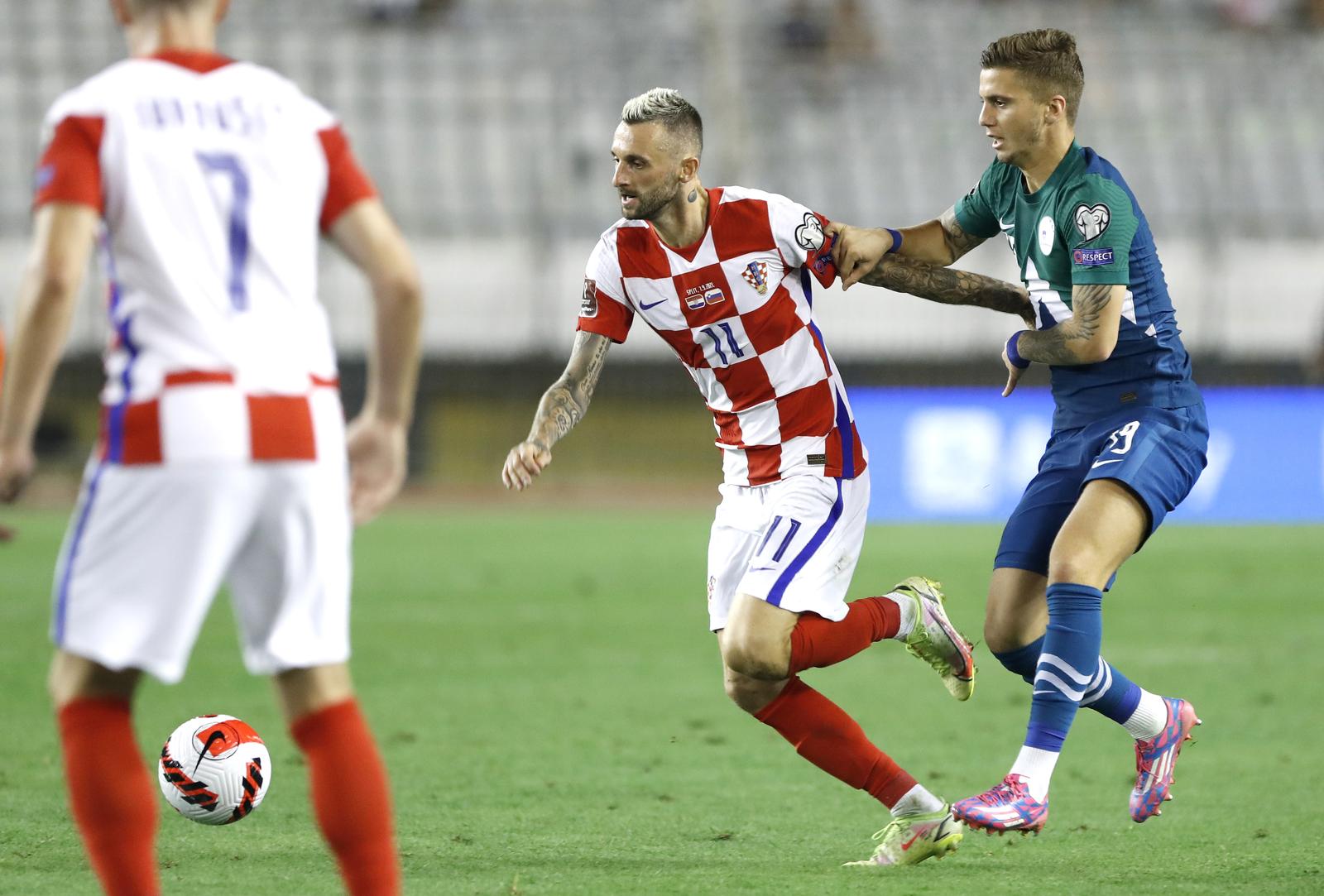
Marcelo Brozović, the undisputed midfield leader at Inter Milan who became champions of Serie A in the 2020-21 season. (Photo: Milan Sabic/PIXSELL)
The good news for Dalić is that several of the players who were in Russia, despite now being four years older, are in even better sporting form than they were back then. Marcelo Brozović has established himself as the decisive player in Inter Milan's midfield, ending Juventus' reign in Serie A last year and fighting for a second consecutive Scudetto this season. Also at Inter, Ivan Perišić has managed to maintain his status as a starter, and despite the passing of the years, Ivan continues to be a benchmark in the Neroazzurro attack, as he proved himself by winning the 2019-20 UEFA Champions League during his loan spell at Bayern Munich.
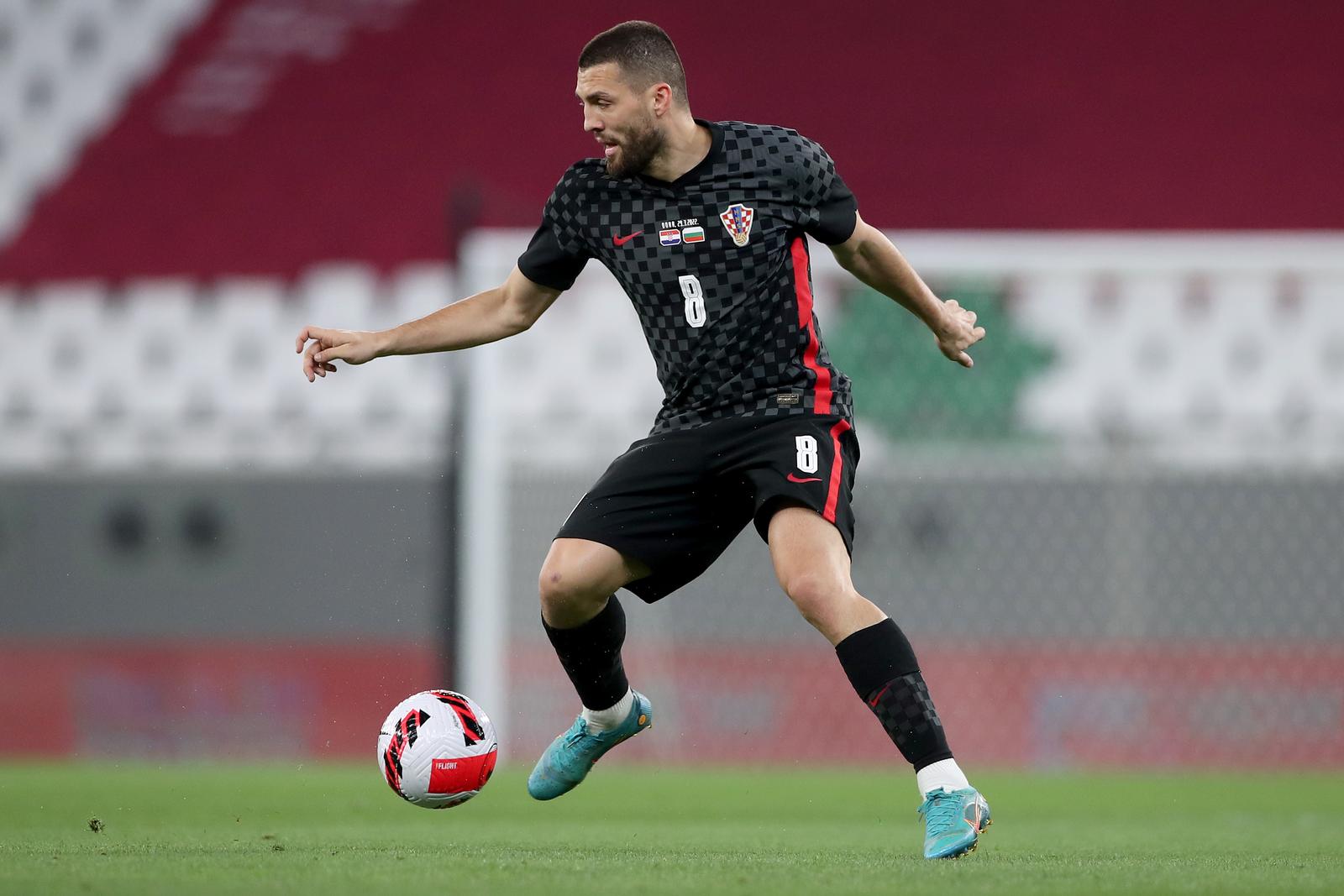
The last seasons of Mateo Kovačić at Chelsea have been spectacular and he is called to be the companion of Modrić and Brozović in the Croatian midfield after the retirement of Ivan Rakitić. (Photo: Igor Kralj/PIXSELL)
Mateo Kovačić, who played a more secondary role in 2018, is now indisputable in Thomas Tuchel's plans at Chelsea, with whom he won the 2020-21 UEFA Champions League, in a midfield that also includes players like Kante, Jorginho, or Saul. Many fans of the London team consider him not only his favorite but also the best. In defense, Dalić still has Domagoj Vida and Dejan Lovren, who in 2018 showed the world their valuable fighting spirit on the field, something that they can still pass on to the younger players.
World Cup calendar
Due to the high temperatures in Qatar between June and July, the usual format of the World Cup will change for the first time in its history. Now, the opening match will be on November 21, while the final will be on December 18. Previously, the group draw was held in December, six months before the start of the tournament. This year, the qualified teams already know their rivals with more than eight months to go until the start of the World Cup. Also, after the draw in December, the players used to face only the second part of the season and some friendlies before integrating with their national team in June.
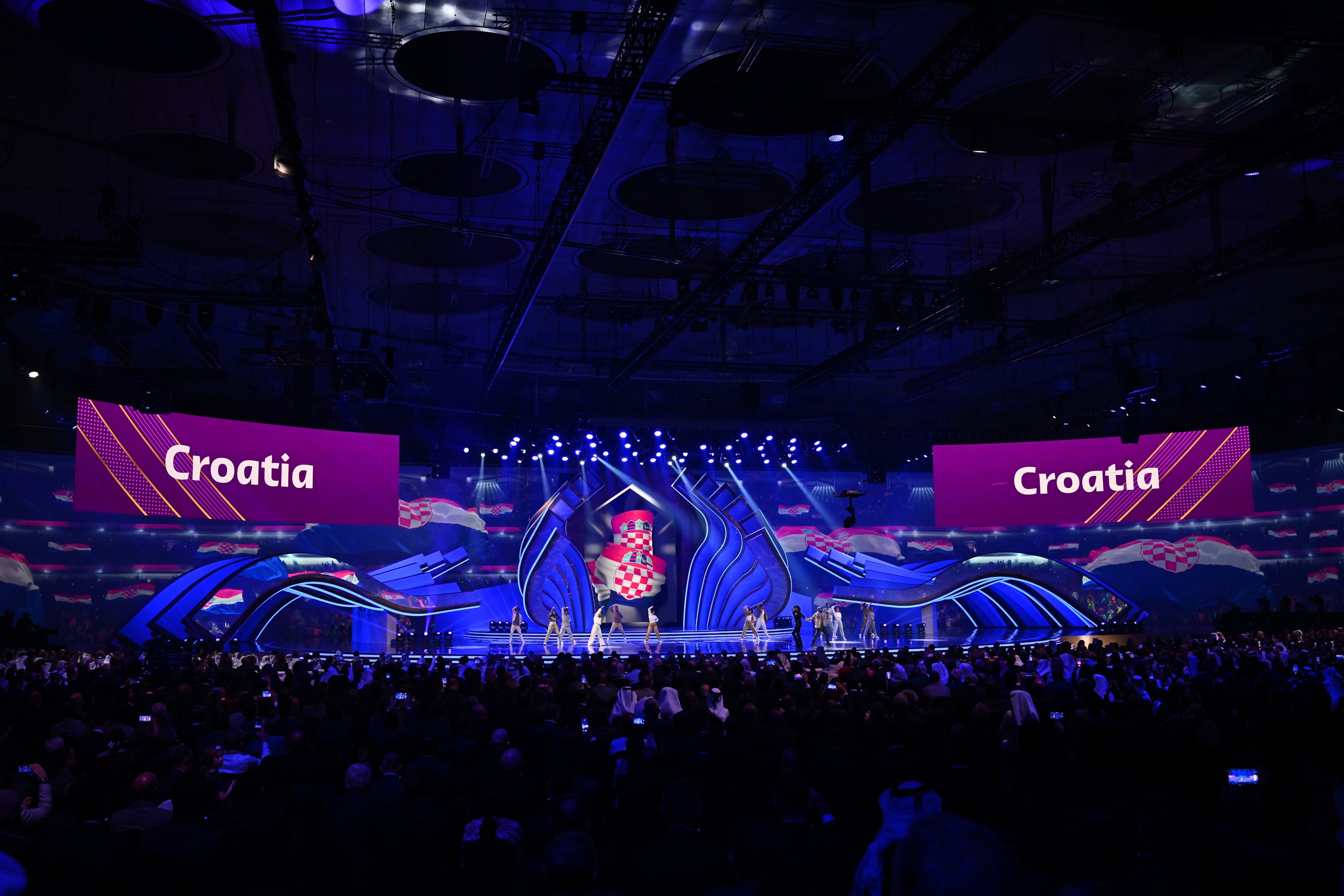
Contrary to previous editions, the World Cup will take place between November and December, and the draw for the group stage will take place in April. (Image: @HNS_CFF/Twitter)
In this way, Zlatko Dalić not only has two additional months to evaluate his players well before making a final decision on his squad in October or November, but he will do so by playing high-competition matches such as the Nations League, in a group that they make up France and Denmark (qualified for the World Cup in Qatar) and Austria, which reached the playoffs. Thus, some players who were not part of the qualifying process from the beginning will have more opportunities to show that they can be decisive in Dalić's tactics. Sometimes four friendlies before the World Cup are not enough to draw any conclusions about line-ups and strategies.
On the other hand, the Croatian players will play two different seasons before the start of the World Cup: the second part of the 2021-22 season, and the first part of the 2022-23 season. This can be beneficial for three main reasons. First of all, some players who are currently not playing many games as starters (Nikola Vlašić at West Ham or Šime Vrsaljko at Atletico Madrid), can solve their situation with a transfer or loan to another team during the summer, and from this way to pick up more form by playing more games.
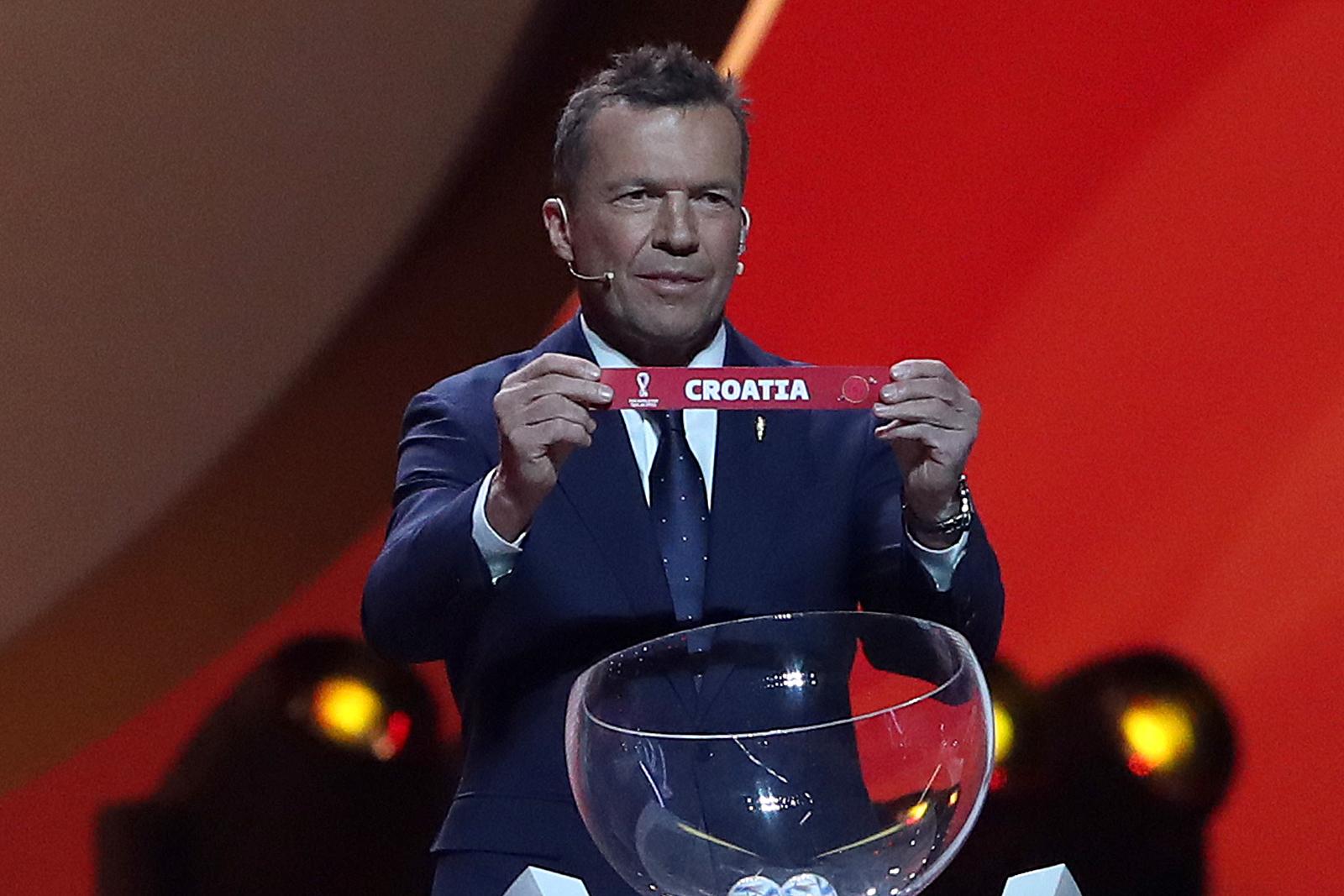
Croatia already knows its rivals eight months before the start of the World Cup, enough time to study them and prepare. (Photo: Igor Kralj/PIXSELL)
Secondly, some players like Ivan Perišić at Inter, Mateo Kovačić with the current problems at Chelsea, or Dejan Lovren at Zenit, can resolve the contracts with their current clubs, and thus become more focused on the field and the Croatian national team.
Finally, and taking into account the competitiveness of the second part of the season, many football players used to miss the World Cup in June as there was not much time to recover from their injuries, some even minor. If it were the case (hopefully not) that a Croatian player suffered an injury in these months, it is possible that they could recover before the World Cup in November, especially considering the rest months between June and July.
The Croatian national team has everything to arrive in good physical condition and great concentration in November, and Dalić to decide on a harmonious line-up and strategy, which could help them face their rivals in Group F with a lot of preparation.
One of the Best Players in the World
Croatia did not get third place in France '98 with a single player, nor the second place of Russia in 2018. Football is a team sport, and to win a World Cup eleven players is not enough, but a complete squad with players committed to a common goal. That is the reason why Croatia reached the final against France before other teams like Argentina, Portugal, or Brazil.
However, if in your squad you have a uniquely talented player, an undisputed figure in one of the best football clubs in history, a leader with 16 years of experience in the national team, and an endless fighting spirit when it comes to attacking and defending even in the 120th minute, it is enough to motivate an entire country and make them believe that they can go very far. Some still believe to this day that Luka Modrić received the 2018 World Cup best player trophy, the Ballon d'Or, and FIFA The Best as consolation after losing the final against France. If his season with Real Madrid (where he was decisive in winning the 2017-18 UEFA Champions League) and his goals and performance in the 2018 World Cup were not enough, Luka has shown them today that he is more relevant than ever and one could even say that he's in the best moment of his career.
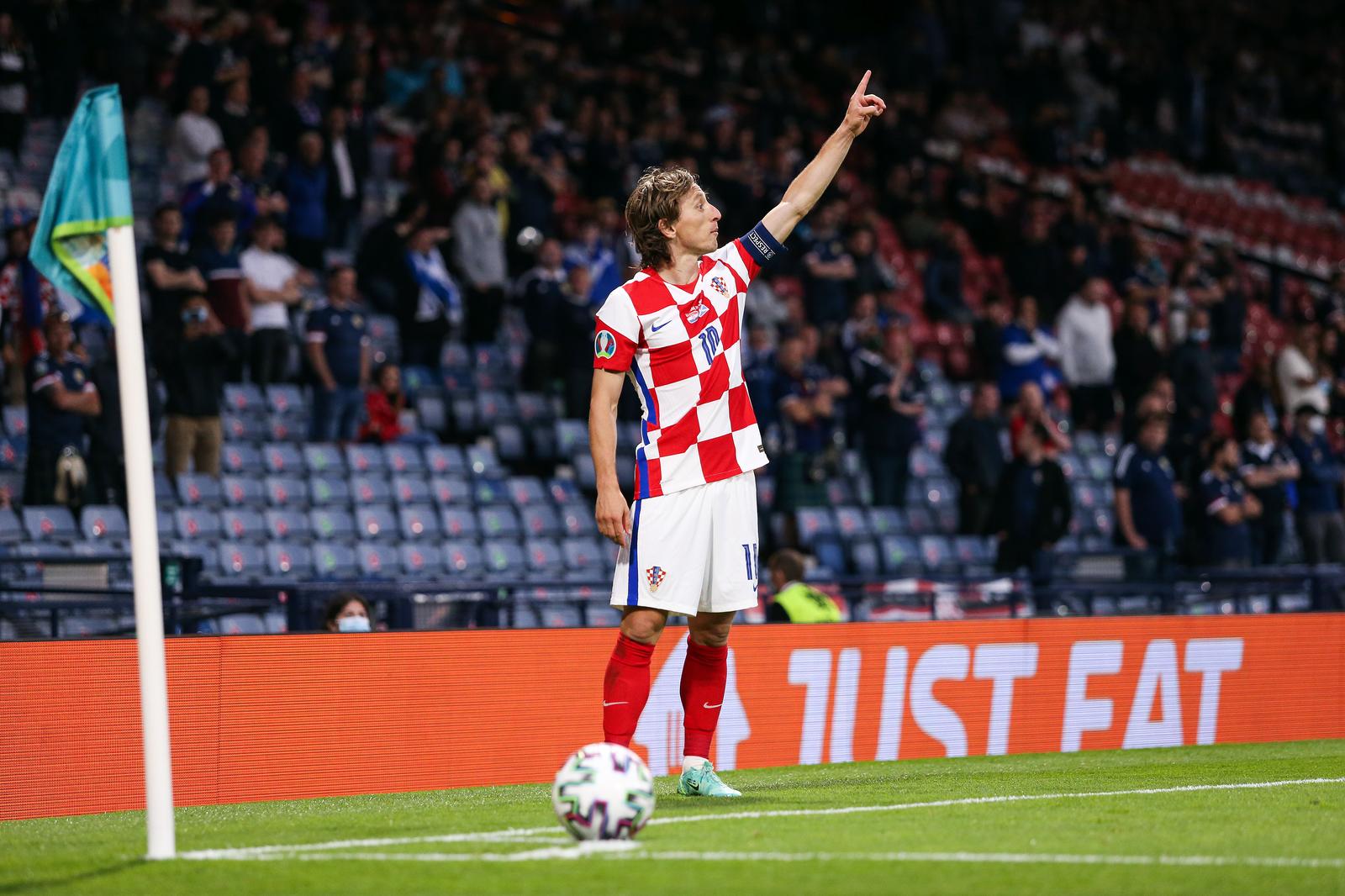
Luka Modrić will play his fourth and last World Cup at the age of 37 and in great shape. (Photo: Luka Stanzl/PIXSELL)
Since he secured a place in Real Madrid's starting eleven in the 2013-14 season with Ancelotti (winning the UEFA Champions League along the way), no player has been able to take his place. Along the years, Luka has seen how several midfielders have come, gone, and stayed: Sami Khedira, Xabi Alonso, Mesut Özil, Asier Illarramendi, Isco, James Rodriguez, Toni Kroos, Martin Odegaard, Casemiro, Dani Ceballos, Federico Valverde, Eduardo Camavinga... but the Croatian has always been a constant, and has recently reached an agreement with Real Madrid to extend his contract even further.
Luka will arrive at the World Cup at the age of 37, probably being one of the oldest among all players. However, and as has been shown in this season of the Spanish La Liga (where Real Madrid is close to winning the title with a great difference in points over their rivals) and in the UEFA Champions League, the Croatian captain is in a great moment of form and with intact talent and technique. Also, Modrić's style of play and his position on the pitch are essential for the team's performance. Some rely on goalkeepers, central defenders, or even forwards as the star of the team, but Croatia sees having a player who is among the best in the world in attacking and defensive work as the key to success.
Luka assists, scores goals, recovers balls, and, above all, leads his team by example and attitude. This will be his last World Cup for him, and we are sure that he will want to say goodbye to the national team in the best possible way and with him a team with talented players who will help him lead Croatia back to glory.
To read more about sport in Croatia, follow TCN’s dedicated page.


